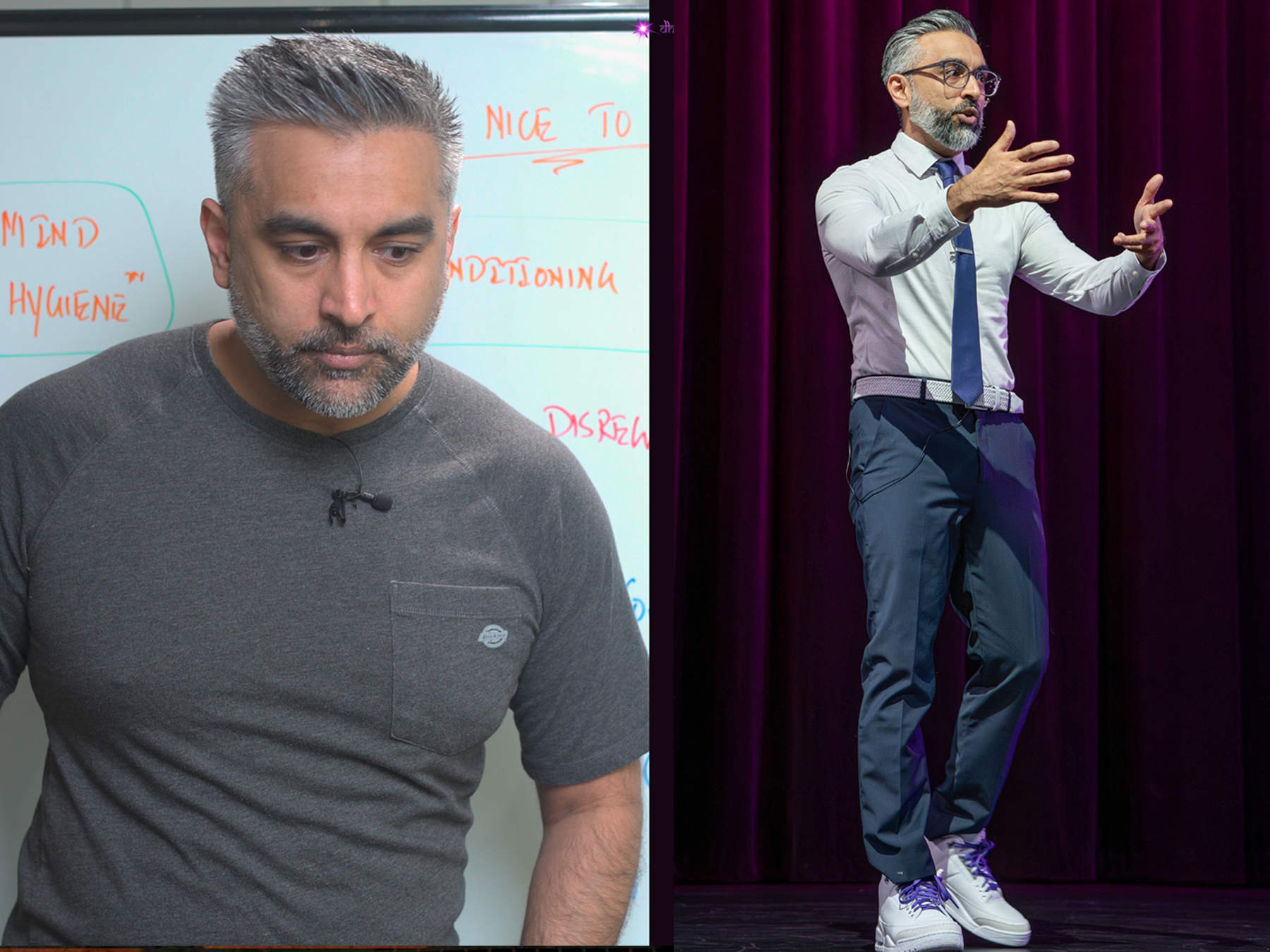.jpg)
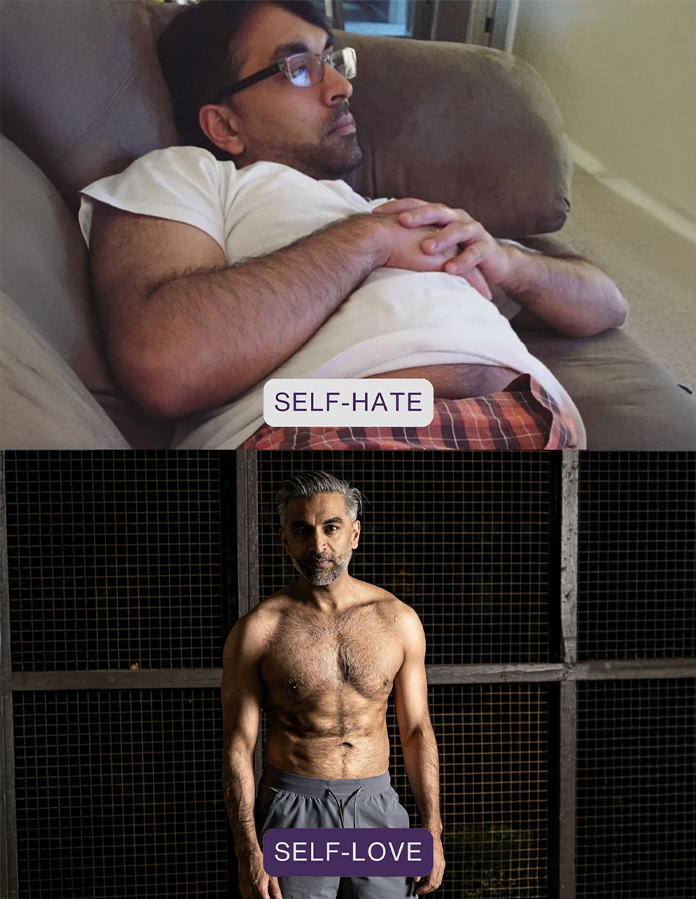
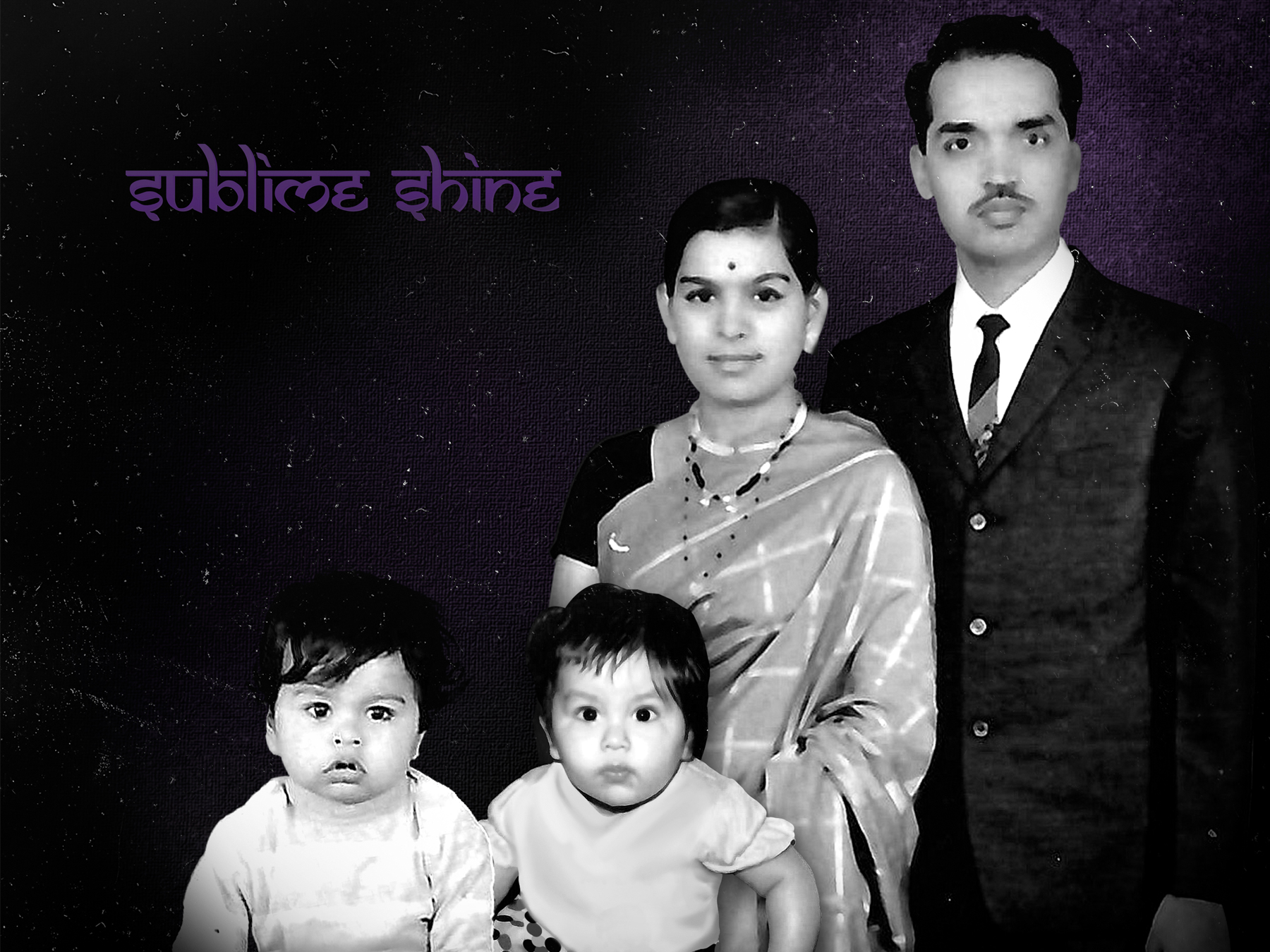
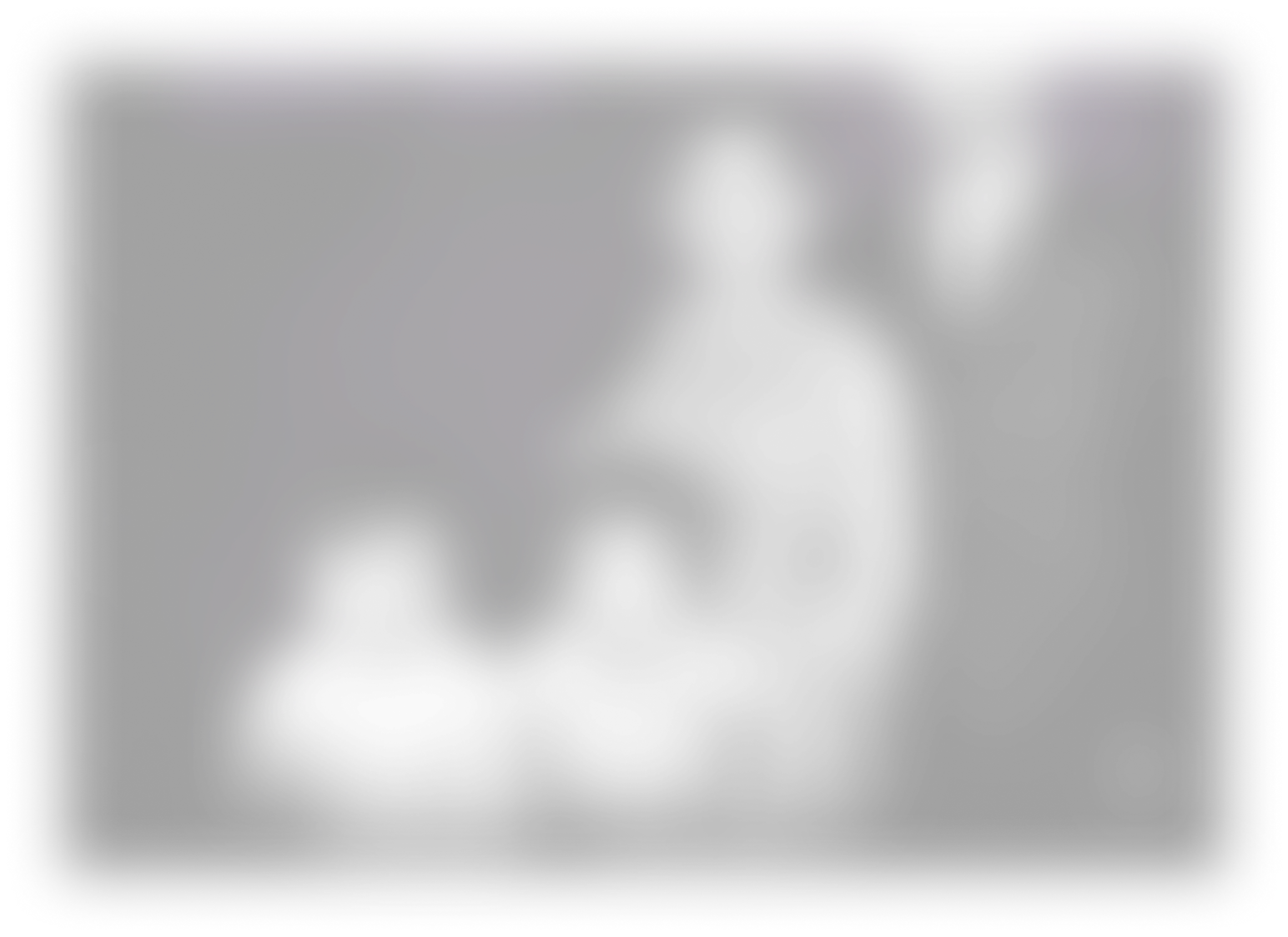
I was born in Juneau, AK, to immigrant parents from Tumkur and Hassan in the state of Karnataka. My father was a very hard-working man, but carried the burden of hiding his sexuality of being gay, filing for bankruptcy twice, and not being proud of himself. That hatred was displaced on everyone. My mother would go on to live with schizophrenia, 16 years lock down, 9 years step down psychiatric facilities, and I would be separated from her until I was 33 and took her out of a psychiatric facility the day after I graduated residency. My brother was gay and had a tough time accepting it. He tried to control and fix his emotions through methamphetamine and alcohol overuse, and was found dead for 17 days with a heart attack at 48. I inherited pain, confusion, doubt, and self-hate, which would be the catalyst to Alchemical Awareness™.
Child Protective Services (CPS), Adult Protective Services (APS), Domestic Violence Shelters (DV), and the police visits became my early reality. Systems tried to protect me, but I was already guarding myself. Fear became my nervous system's first language. I was undergoing neurobiological warfare before I could even speak a complete sentence.
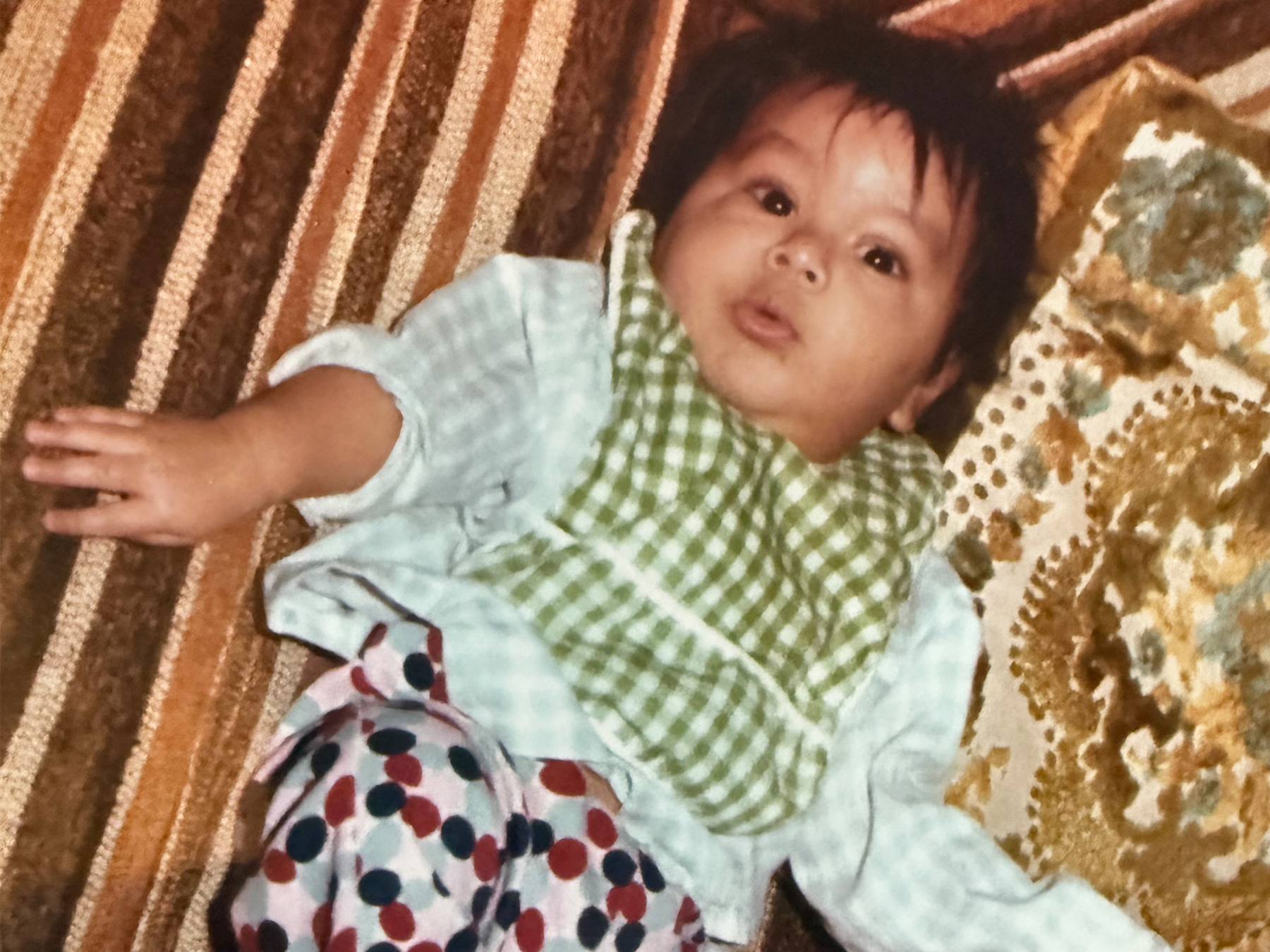
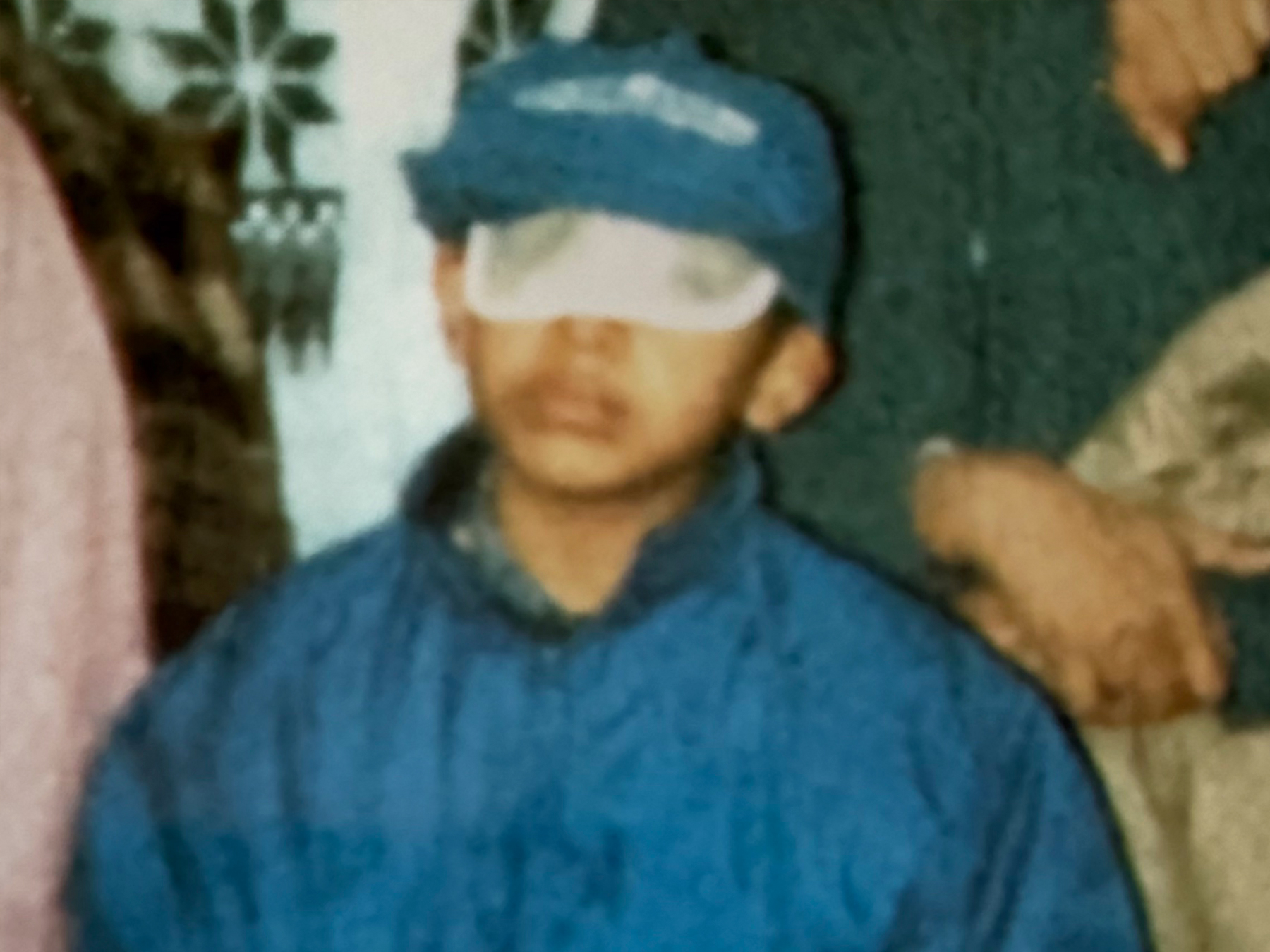
You know, my mom wouldn’t say much about my childhood. One thing she always says in her cute, soft-spoken Kannada is that my dad said, “Don’t cry at the airport.” That was when I was separated from my mom. When I moved to Seattle, Child Protective Services (CPS) was ongoing with regular physical and mental abuse. GOD was always there guiding me, and for some reason wouldn’t let me give up. The physical abuse is one thing, but saying—wait, no, yelling—that “you’re stupid, you’re dumb, and you’ll never amount to anything” daily must’ve been hard for that young boy to tolerate. I bet if he just said it once, it would’ve hit harder than saying it every day. The empathy I have for him today is that he was hurting so much that he felt the need to displace his fears on an 8-year-old to feel better about himself.
At my last speaking engagement, I told the audience that if you’ve ever felt like someone’s words tried to define your worth, you can alchemize those moments into the very fuel that drives your future.
This picture was taken, I believe, in the 5th grade. I do not have many photos of me growing up because they were all thrown away after my mother had a schizophrenic episode and she got evicted. There are no photos of me from middle school. However, this time in my life is significant, which is why I've placed this picture to show how I was still trying to be happy. In 7th grade, I was made fun of for years for saying that I masturbated in the band room. I’m still embarrassed to talk about it. To be honest, I didn’t know what that was at that age. I was just doing what everyone else was doing in the bandroom. At this time, I was being beaten by my dad regularly, going in and out of Child Protective Services (CPS). Still, I was putting on a facade. That rumor was one of the worst experiences I've had, and it was a setup for my overly confident wannabe gangster attitude.
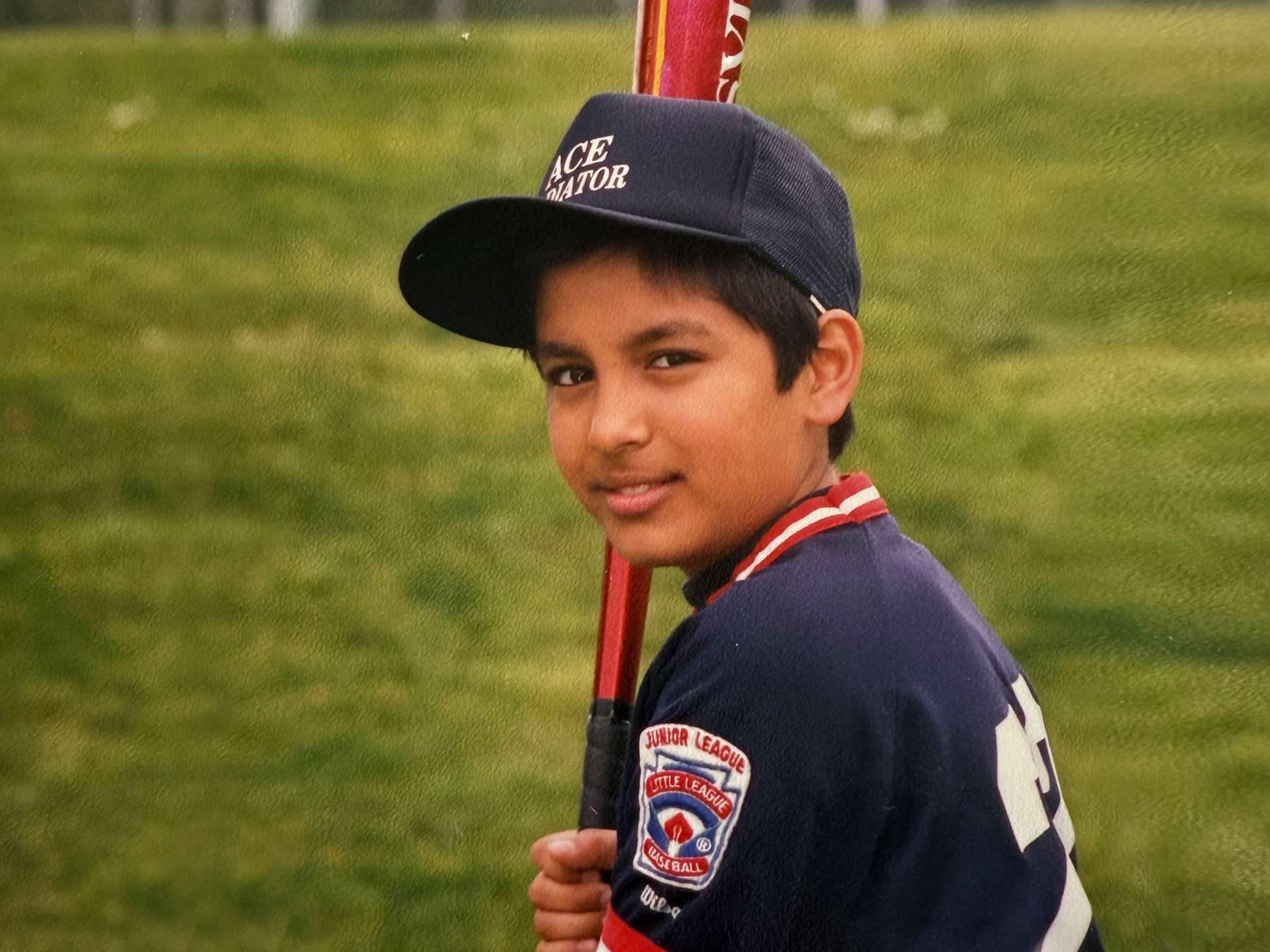
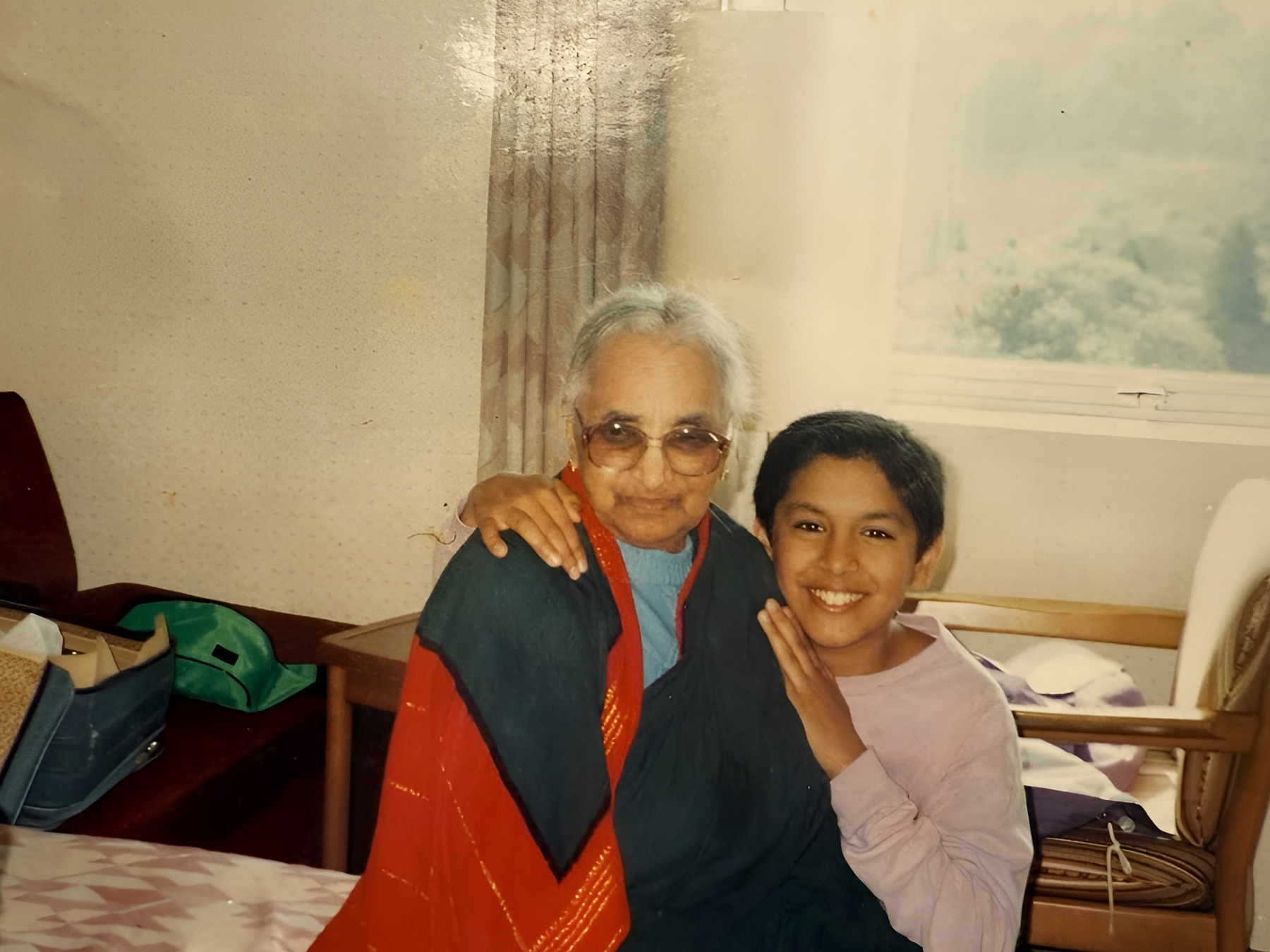
Talking about this part of my journey remains deeply difficult, unlike many other experiences I've consecrated. My mother yearned to be my mother, but my dad and her schizophrenia created a barrier. I’ve just added this now after finishing up all of the other text.
This picture was taken in Tokyo during my 7th-grade summer break when my grandmother and I traveled to India. My dad wouldn’t allow me to eat anything outside of our home. In Tokyo, my grandmother, sensing my needs, encouraged me to visit the hotel restaurant and choose whatever I wanted. She even gave me $5 that day, a gesture that meant everything and had little to do with the money itself. She knew what I endured: witnessing my father's regular beatings and constant yelling. I'm sure she simply wanted me to have a moment of peace, knowing "Appa" wasn't around.
My grandmother became a vital source of comfort, a comforting figure in my life from ages 8 to 22, when I was by her side as she passed away in my medical college in India. I’m curious to write about this experience later. You might notice that I do not use the word trauma anywhere. They are life experiences that you have not been inspired by yet.
You see, Mind Hygiene doesn’t work all the time, and that’s the best part. You know what it takes to be in Emotional Freedom™. You'll probably feel good 70–90% of the day, at a high level, without anyone cheering you on. You shouldn't just listen to me and blindly take my advice. Instead, I would encourage you to write it down on paper. Write about difficutl memories once, then twice, then five times, ten times, even five hundred times. Then you can ask AI, or a coach, or a therapist. And then write it down again, just to see if you believe that about yourself.
What this means is, you don't need me, a doctor, a therapist, a coach, or even medication to help you. You can genuinely do this by yourself. And that's precisely what I'm here to show you. I am the prototype, and I know that my grandmother blessed me with this writing that I’m inspiring you with right now. I’m sharing this because I want you to see that you can achieve emotional freedom by yourself without external validation — but if you have any health concerns or mental illness, you should speak with your doctor, as I’m not giving you medical advice.
I was tired of being bullied, so I was en route to becoming a wannabe gangster. At that time, I was staying with random people, tongue out like MJ while playing basketball, started smoking Newports, trying to emulate Tupac, listening to Brotha Lynch Hung, rapping Bone Thugs-N-Harmony, watching Menace II Society, American Me, Blood In, Blood Out on repeat, and matching bowls of weed between classes at high school. To be cool, I was a Blood half of the year and a Crip the other half of the year. Dang, I remember walking in all blued up into Fred Meyer, stole some batteries, and then got caught. The guy who caught me asked if I was a Crip and started speaking slang to me that I will not write here. He may have been a wannabe too.
During my one-on-one coaching, I first ask people to write down exactly what their awareness was in specific experiences, because when you do that, you’re able to understand yourself instead of trying to control your mind.
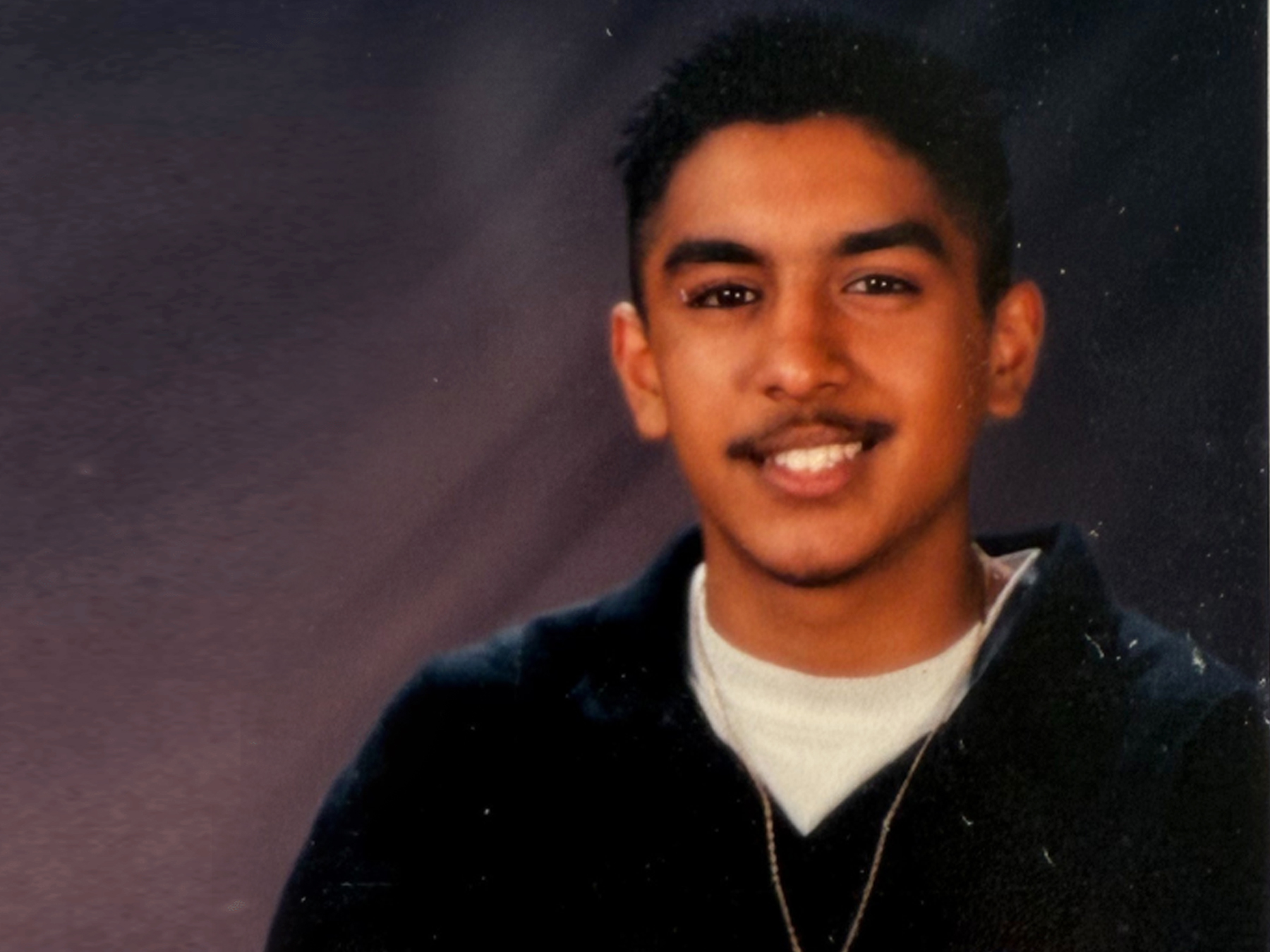
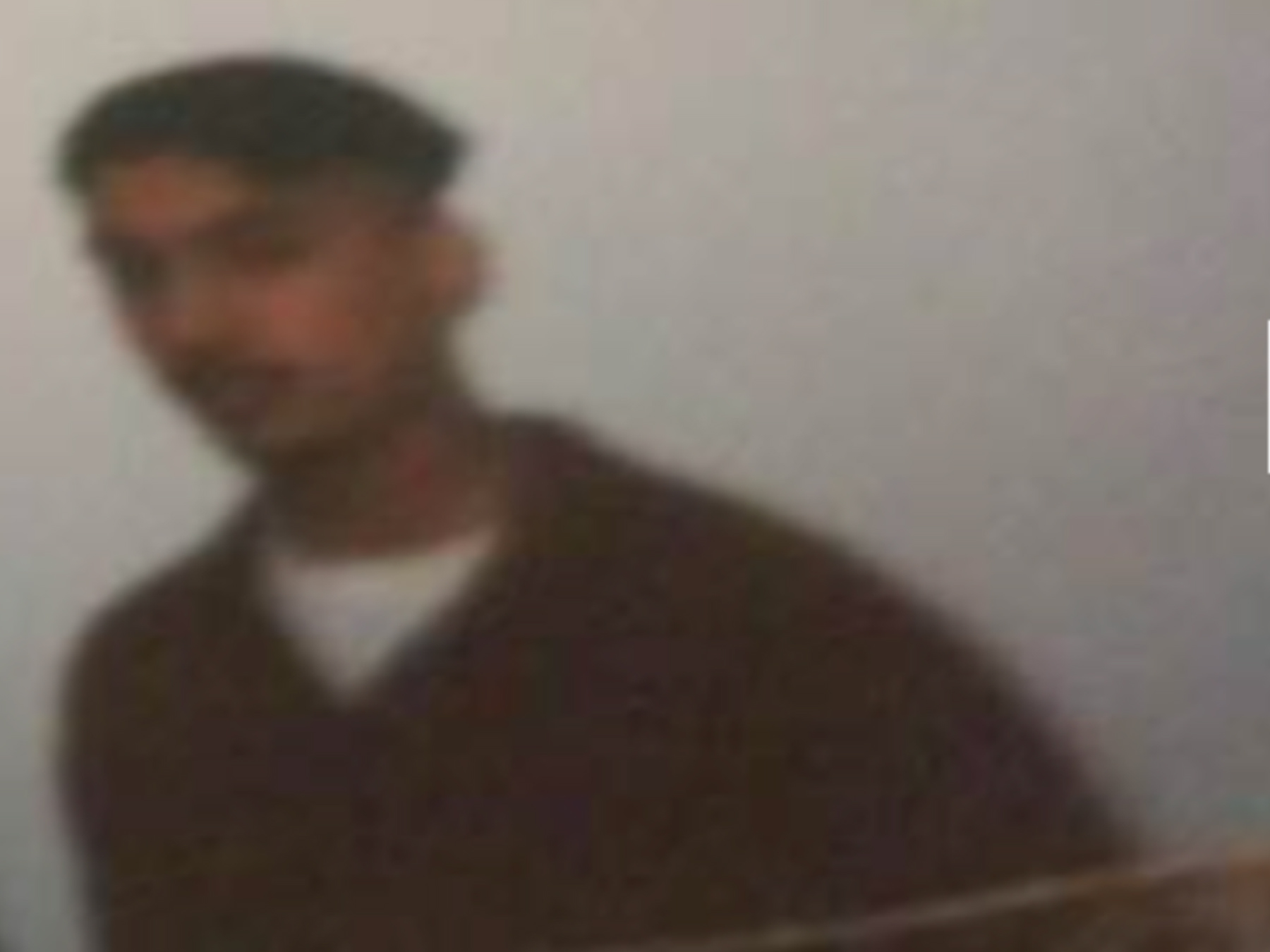
This is the only official image I have from my wannabe gangster days. This is how we used to talk back then. My homie was like, “Aye dawg, ice cream ain’t good for you.”I said, “I agree,” but the truth is, I enjoyed ice cream back then. Do you know how people say, “I can’t believe I said that?” I do. It’s because I wanted everyone to like me. I quit sugar in December of 2024, but before then, I liked ice cream. This just shows the extent to which I’d go to please others, to try to fit in. I just wanted someone to like me. Someone to believe in me.
That pattern followed me for years… until I started living in monastic solitude.
Let’s not forget, I probably had a pack of Newports, a dime bag of bud, and a 64-ounce Mickey’s Ice on me, en route to jacking cars for fun.
My world was hurting. My mom had just up and left Juneau with a manic episode when I was 15.
She would be in and out of psychiatric facilities. I started running away, staying with different people. My mom and I did live together for a couple of years, but we never really hung out. I was homeless at varying parts of my teenage years. She was either hospitalized, or I was being hauled off to juvenile detention. We were on welfare, food stamps, and our car got repossessed.
I made three trips to juvenile detention for stealing jeans and grand theft auto. After my third stint in juvie, I moved to India. My mom had been hospitalized again with a schizophrenic episode, and everything was gone. All my wrestling trophies, pictures, and baseball cards were thrown away after she was evicted.
After I was sent to India, my passport was taken away, and I ended up attending a pre-university college. To be cool in Tumkur, you had to study. I studied 8 hours every day for 2 years straight. I didn’t know there was a subject called Trigonometry, and even though I had memorized the Bhagavad Gita at one point in my life, I didn't know how to write Sanskrit.
My aggregate score in Physics, Chemistry, Mathematics, and Biology was 88%, and my Common Entrance Test (CET) Ranking was 3,272 out of approximately 150,000 people who took the test.
I received 55 scholarships in various fields of engineering, approximately 22 scholarships for dental school, and 7 scholarships for medical school. Even though my dad abused me, made me hit my mom, always said I was stupid and I’d never amount to anything, I can see he was proud of me. That day, in the CET cell in Bengaluru, he said, 'Why do you look so happy that you got 3272 out of 150,000?' Why aren’t you number 1?
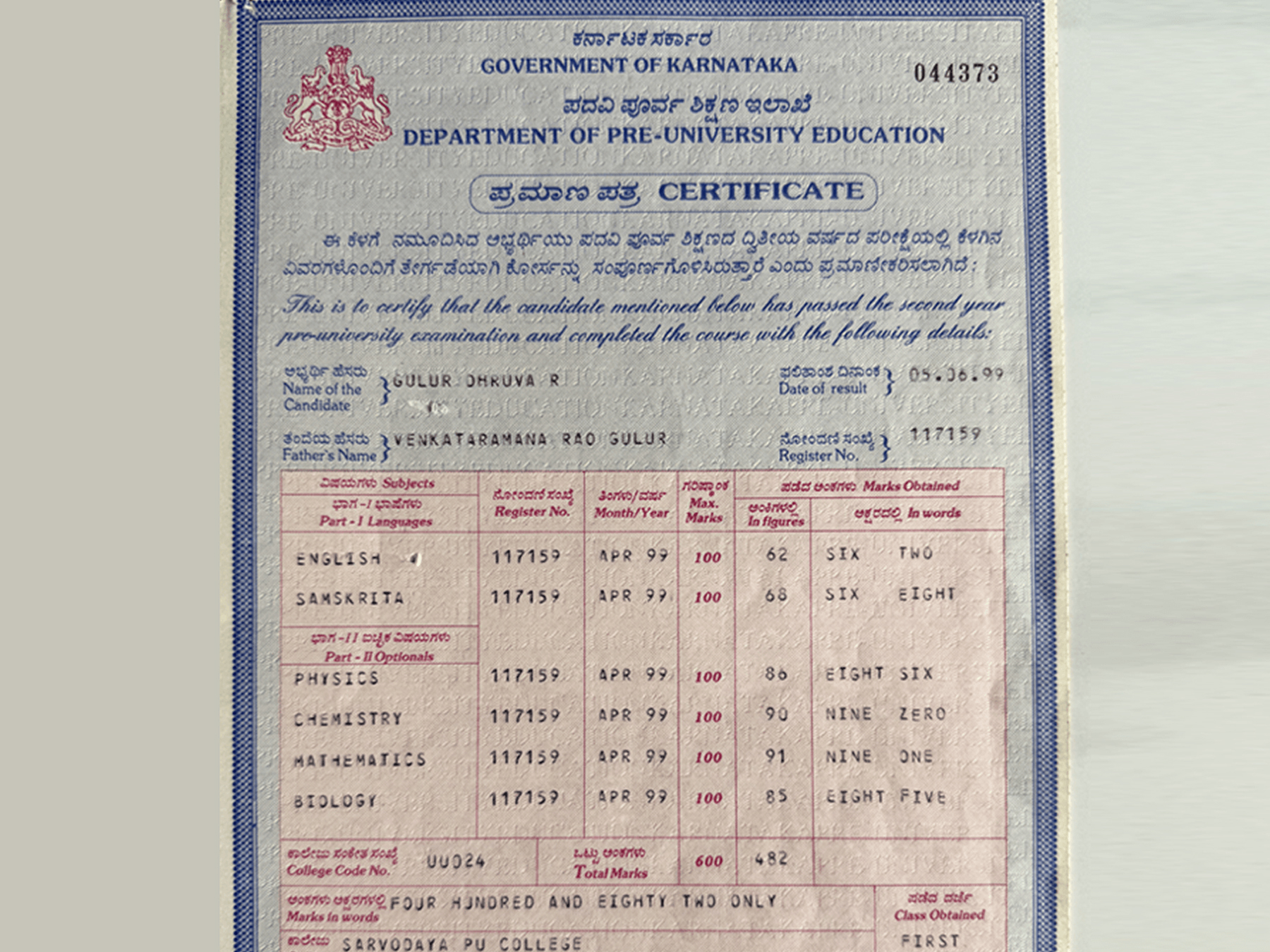
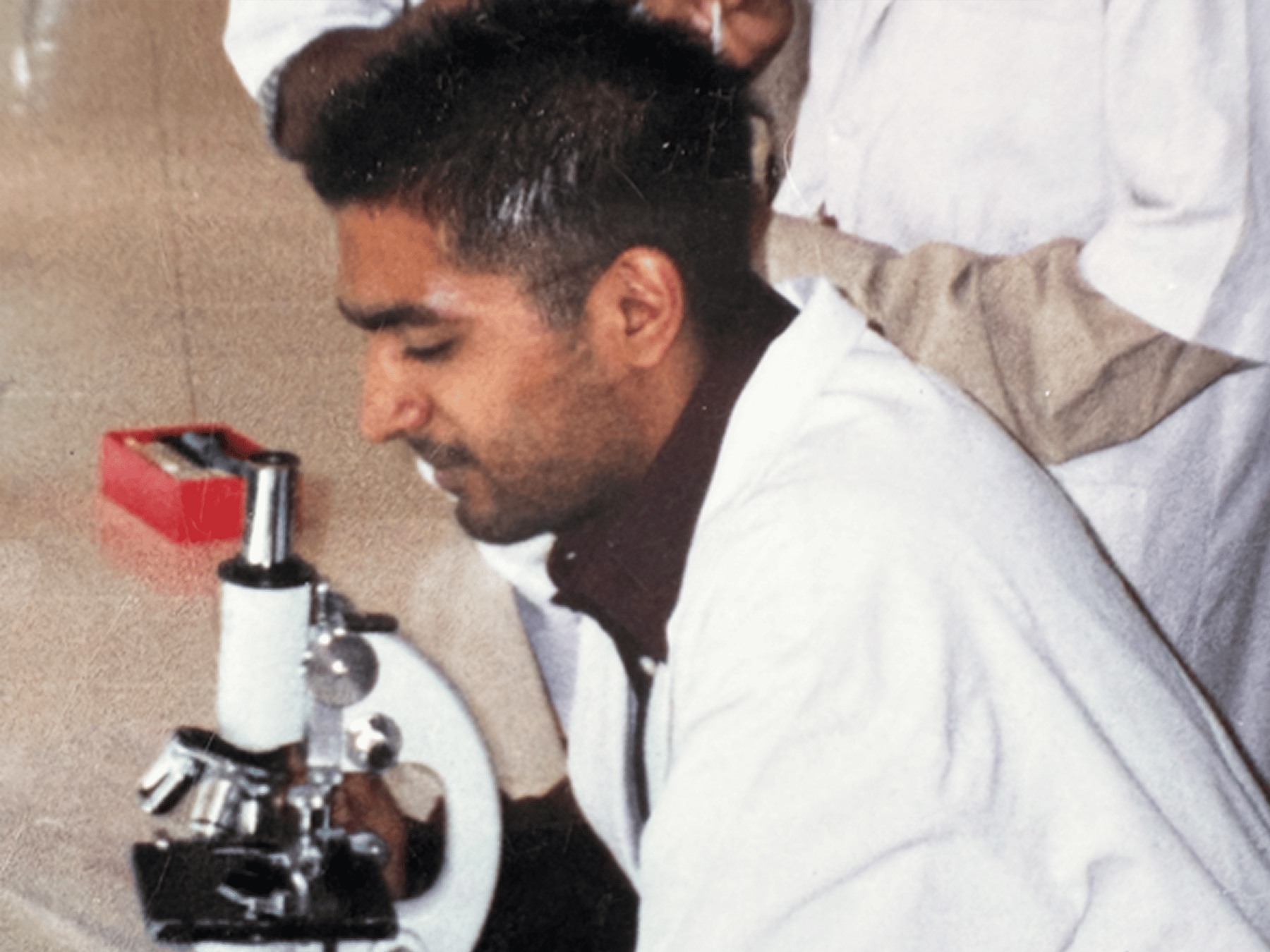
I aspired to be known as the studious one, dedicating 4-6 hours daily to studying during the first year of medical school, increasing to 14-16 hours during exam time, and aiming for a first-class ranking. Don’t quote me on this, but I believe 40% of the first-year students failed and 60% went on to the second year. I think that approximately 10% of students fail every year, and around 40% graduate on time. One of them was me. Just 3 years before that, I would’ve been dead or in prison as an adult for life.
This holds true, and it’s something one of my billionaire coaches has told me over and over — when you work just a little bit harder than the people in your field, you stop feeling the need to catch up to them, and before you know it, you’ve passed them. But that should never be your goal. Your goal should be to believe in becoming the best version of yourself by consistently investing in yourself.
I was performing, rapping, playing basketball, and speaking in medical college. You can see the details from that time, when I was still a wannabe gangster, wearing a red rag. I had a loop in my left ear and a stud in my right. I’m wearing a Sonics jersey, a yellow shirt, and I’m just screaming for anyone’s attention.This image is very representative of who I was back in my wannabe days.
%20(1080%20x%201920%20px).png)
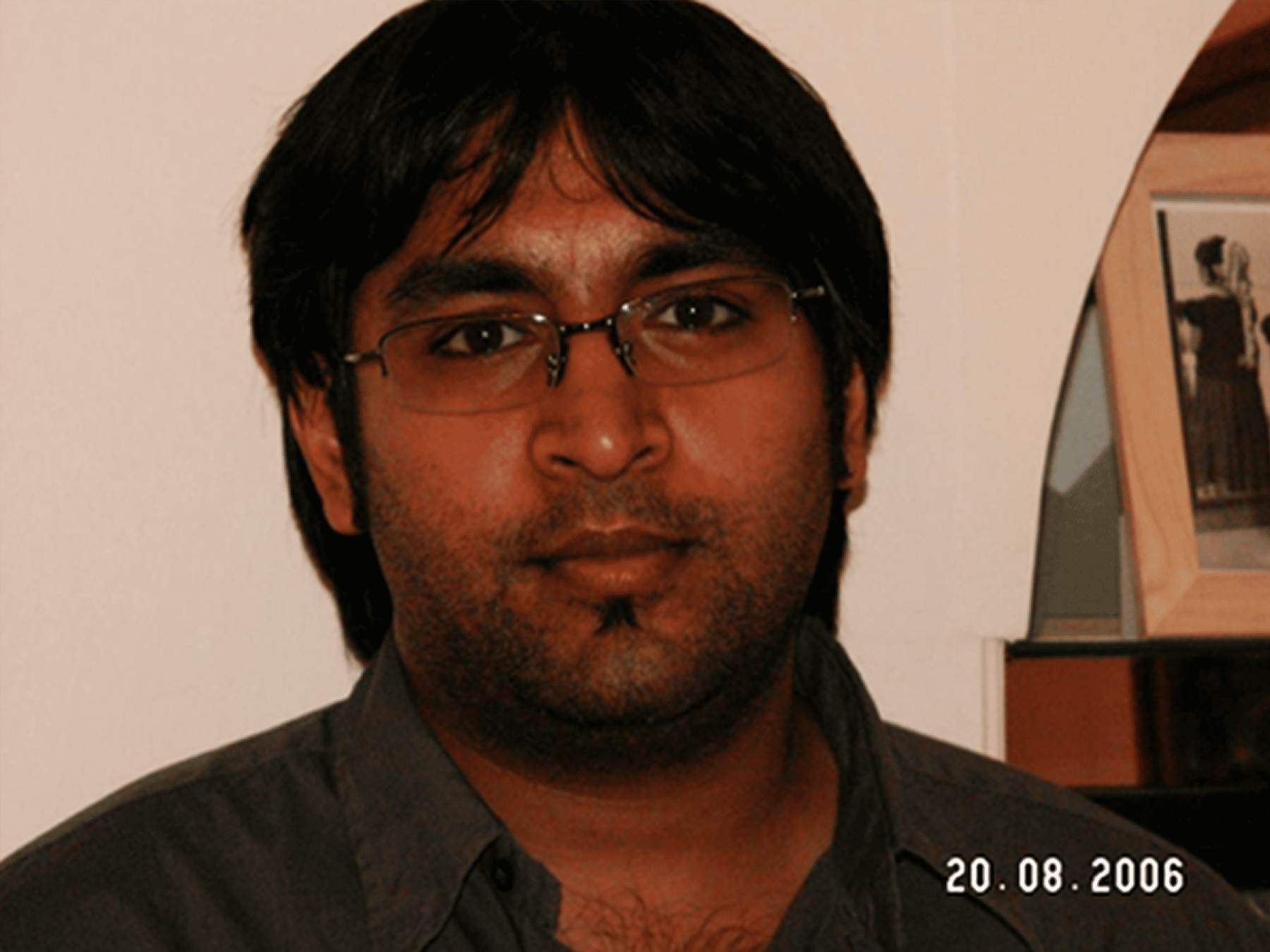
At this time, I had finished medical college and left India the day before my student visa expired. My dad wanted to keep me in India. He would kick me out regularly, and I found myself wandering in Bengaluru. But I had a great partner at the time who supported me.
My cousin and friend offered to take care of me, seeing my potential and believing in me when I had no self-belief. I was homeless for the next year with a medical degree and $500 to my name — which was borrowed. I moved to London, then to New Jersey, as that’s where I was offered help. I barely passed the United States Medical Licensing Exam (USMLE) Step 1, was eating two bowls of cereal twice a day, gained 60 lbs, was smoking half a pack of Marlboro Lights, and had no clue what it meant to be an American again.
I had been in India for 9 years.
As a foreign medical graduate, I spent four years out of medical school before finally securing a residency. After being taken care of by one of my best friends, I finally got three jobs. I borrowed money from another friend to cover the cost of my USMLE steps.
First, I worked part-time as a pharmacy tech and held a part-time job at Macy's for about six months, making about $8 an hour in 2006. Then, I started working at Kaplan Medical, teaching USMLE Step 1 and serving as a Kaplan Medical advisor. I was making $17/hour, but then I landed a job at a call center, where I earned $22/hour.
But none of this really mattered, because I was struggling to pay off my Macy’s credit card and my Chase credit card, both with limits of around $500. And then came the payday loans. Boy, I was stuck for a couple of years there. I had lost about 20 lbs, but then gained it back in about a year, struggling with emotional eating. I was trying to fit in with other medical school graduates by buying clothes on credit and paying for drinks as if it were free money. There was a part of me, then, that was so ashamed of who I was. I felt like a failure. I saw all these International Medical Graduates (IMGs) passing, getting into residency, and I thought I was behind.
I had a USMLE Step 1 score of 76 and a Step 2 score of 85. I attempted Step 3 and failed it twice. Up until then, I had never failed a test. I didn’t match into residency for the next three years.
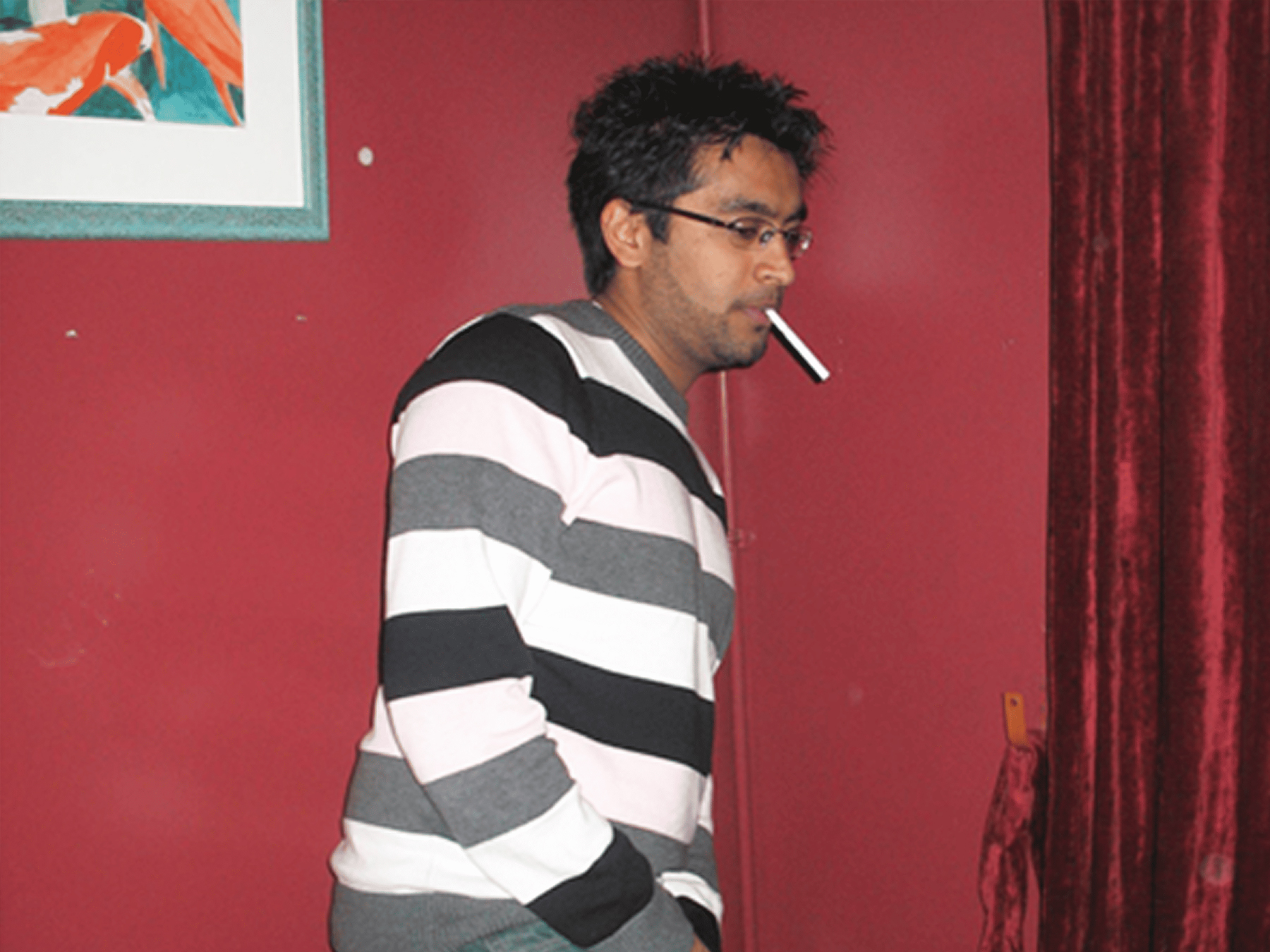
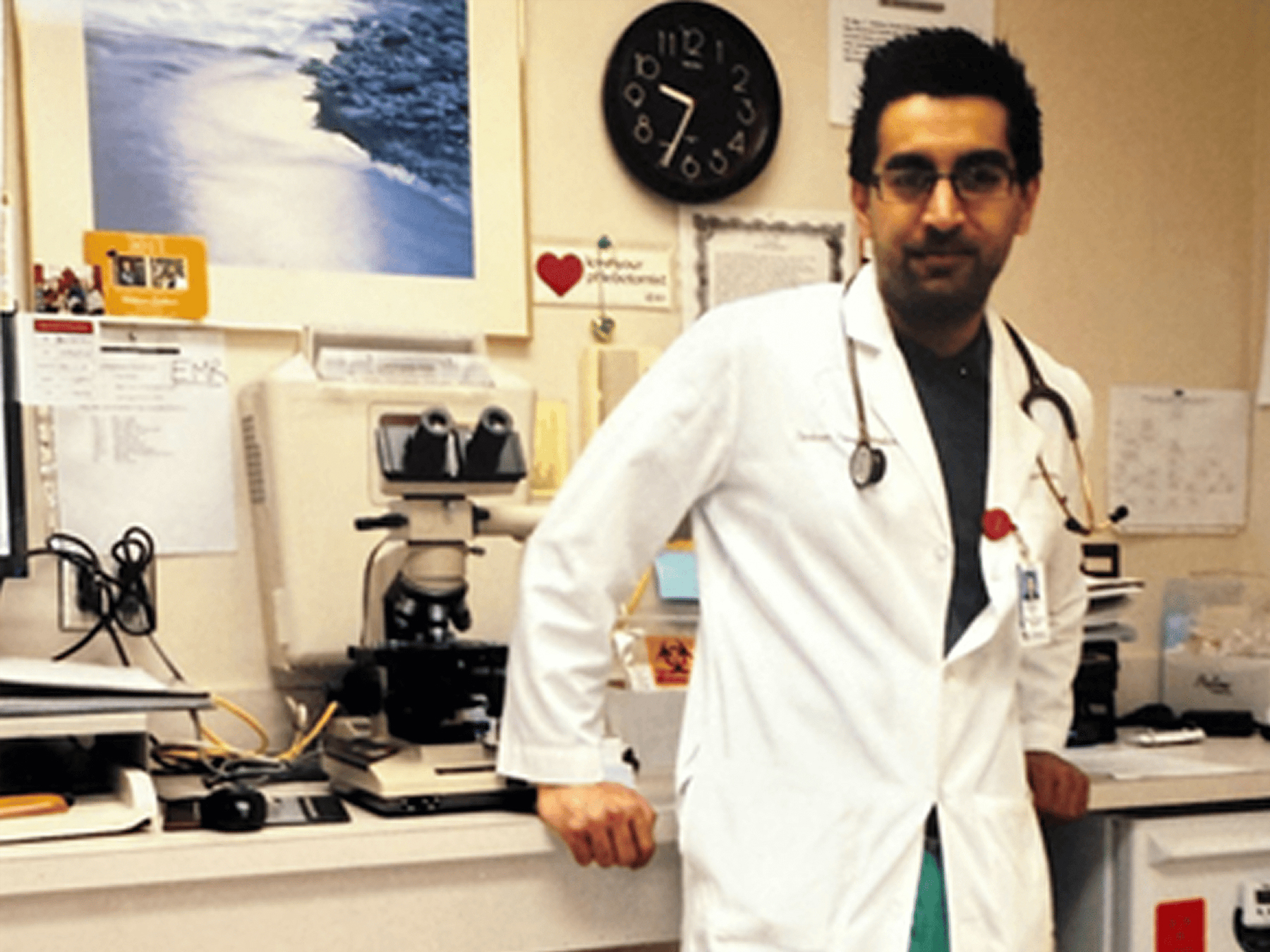
I prayed to GOD many times, assuring my creator that if I ever made it into residency, I would dedicate my life to service. Well, it was the day of my third match, and guess what? I didn’t match. I still didn’t quit, but I was defeated. I was calling programs the day after match day. There were about 220 Family Medicine positions. I pulled off something that likely had a less than 1% probability, especially with a four-year gap. I finally made it into residency and got accepted into the post-match.
This was the toughest time of my life up until then. I was four years out of medical school. My cousin lived there too, and I stayed with him for a few months. He offered me support at the time. Residency was tough. I was working 80–90 hours a week, getting scolded, and thought I was the stupidest person on earth. But I had always manifested taking my mom out of a psychiatric facility. I didn’t know who she was, but I was determined to help her. I would meditate on that thought daily, work my butt off, and graduate residency on time. Two residents I knew in the same program didn’t graduate on time.
I asked every resident in that hospital questions about their studies—how much they were studying, what they were studying, and how they were learning. I would ask attendings if I could hang out with them when I was on call. Then, I’d go home and work twice as hard. Not to compete, but because I didn’t grasp things as quickly. Oh, let’s not forget the letter I got saying I wouldn’t make it into second year if I didn’t shape up. My belief at the time was that I was the dumbest doctor on earth. I truly believed I was just trying to keep up.
But over time, I started to understand more than many of them. That’s when the cognitive and emotional dissonance began. I was still trying to belong to a world I had quietly outgrown, and that created a subtle distance I couldn’t name at the time. It wasn’t because I was smarter than them; it was because I worked 15 times harder on everything I sucked at. Shoot, I thought one person would like me for that. I was the overconfident one with low self-esteem.
This was when I started drinking heavily alone, gambling in the Iowa casinos, and smoking about a half pack of cigarettes a day. I also brought my brother to live with me and put him into rehab three times. Amazingly, I managed to do the P90x twice in residency, played basketball, and worked out regularly, lost 30 lbs, and was in the best shape of my life.
I seemingly achieved the pinnacle of conventional success: marriage, a home, and the immense, hard-won victory of taking my mother out of a psychiatric facility where she had spent 27 years (16 in lockdown, 9 in step-down). This outward picture, alongside my ongoing attempts to put my brother into rehab three times, masked a profound internal abandonment.
My patient scores suffered, reflecting a deep lack of self-respect that was mirrored in how I believed others viewed me. I desperately tried to “fix” my emotions. Still, my unresolved resentment led to cruel self-talk, and I increasingly coped with this immense dissonance by drinking alone, occasionally smoking marijuana, smoking cigarettes, and gambling heavily. I ate poorly and was en route to gaining 30 lbs.
What I can tell you now is that when you think you’ve reached your pinnacle of success, that’s often when your personal development truly begins — because that’s when you can start addressing the resentments you hold toward yourself for all the things you still want to accomplish.
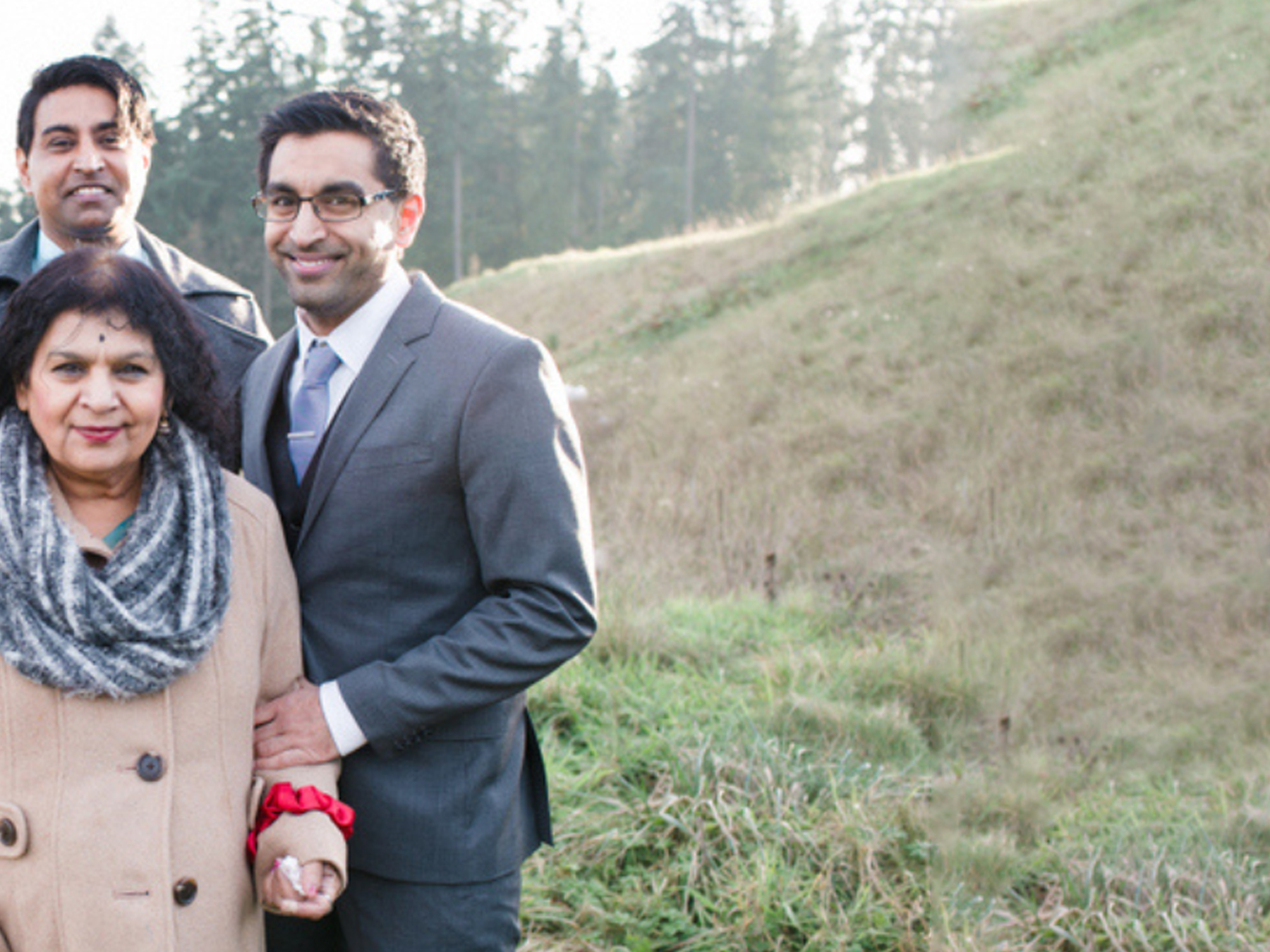
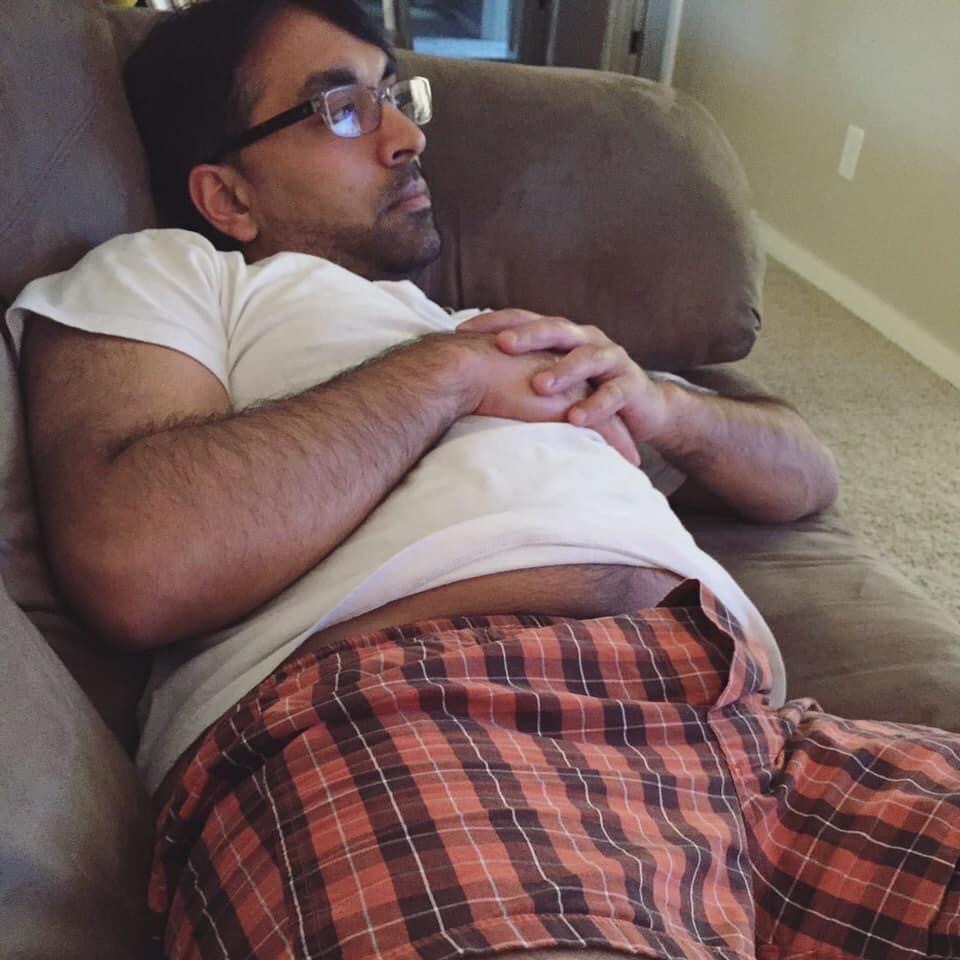
My overconfidence weighed heavily on my low self-esteem. I resented and judged myself so much that it deflected onto others. I refused to accept that I hated myself and didn't think blaming others for my problems was right. I thought everything was my fault. My narcissistic behavior became worse when I started talking crap about others, lacking empathy for others, and being condescending to myself and others. I gained 30 lbs during this time, trying desperately to control my mind. When I developed these deep-seated resentments, the only fix I knew was eating poorly, drinking alcohol, smoking up, and puffing cigarettes. My narcissistic traits grew stronger. I spoke condescendingly, lacked empathy, and even started talking badly about people just to feel in control.
The most disturbing part was that I agreed with others who did the same. I found comfort in those life experiences because I thought it was normal to complain, talk crap about others, blame systems for my problems, and then feel like it wasn’t shameful behavior, even though I was waging a silent neurobiological war inside myself. I judged myself so harshly that it began leaking onto others. I craved admiration but avoided real vulnerability. I would act detached, calm, and in control at all times, while at the same time rehearsing insults about myself in private—just so no one else could get there first. I compared myself constantly. Even kindness became performative. I wanted to be seen as good, but not feel anything. I thought I deserved less than others simply because of how much suffering I had seen.
I got divorced. I was drinking alone, smoking weed alone, going to the studio alone, rapping alone, sleeping alone. I was single on purpose for 5 years after my divorce. I was tired of my narcissistic traits of blaming others, deflecting my fears on others, being condescending, judging others, lacking empathy for others suffering, and agreeing with people who were complaining. Even though I never played victim, never really thought anyone deserved real harm, or blamed others for my problems, I would find myself trying to fit in with that narcissistic group. I still would—thinking that being alone was because I was stupid and no one liked me.I never bought into the “I’m a doctor” complex.
But I would question, “I’m a doctor, though,” and still would say I’m stupid and dumb. The genesis of Mind Hygiene began here—rapping about all the things I just spoke about. It was forged in the crucible of lived experience and deep, intentional self-work. I was determined to figure out what it really meant to love myself.
This is when true monastic solitude began. Tupac says, “I feel his hand on my brain, when I write rhymes, I go blind and let the Lord do his thing.” I always felt GOD was speaking to me through my physical writing. Whenever I wrote, something magical happened. I had no idea what or who ‘Sublime Shine’ was. I just kept rapping it. That’s when I was bestowed the rap name, Sublime Shine.
Sublime means to elevate your thought. Ok, so you think you’re dumb—let’s elevate that. Let’s shine on it. That’s when I started going to Cognitive Behavioral Therapy (CBT). I also wanted to keep my job because my patient scores were horrible.
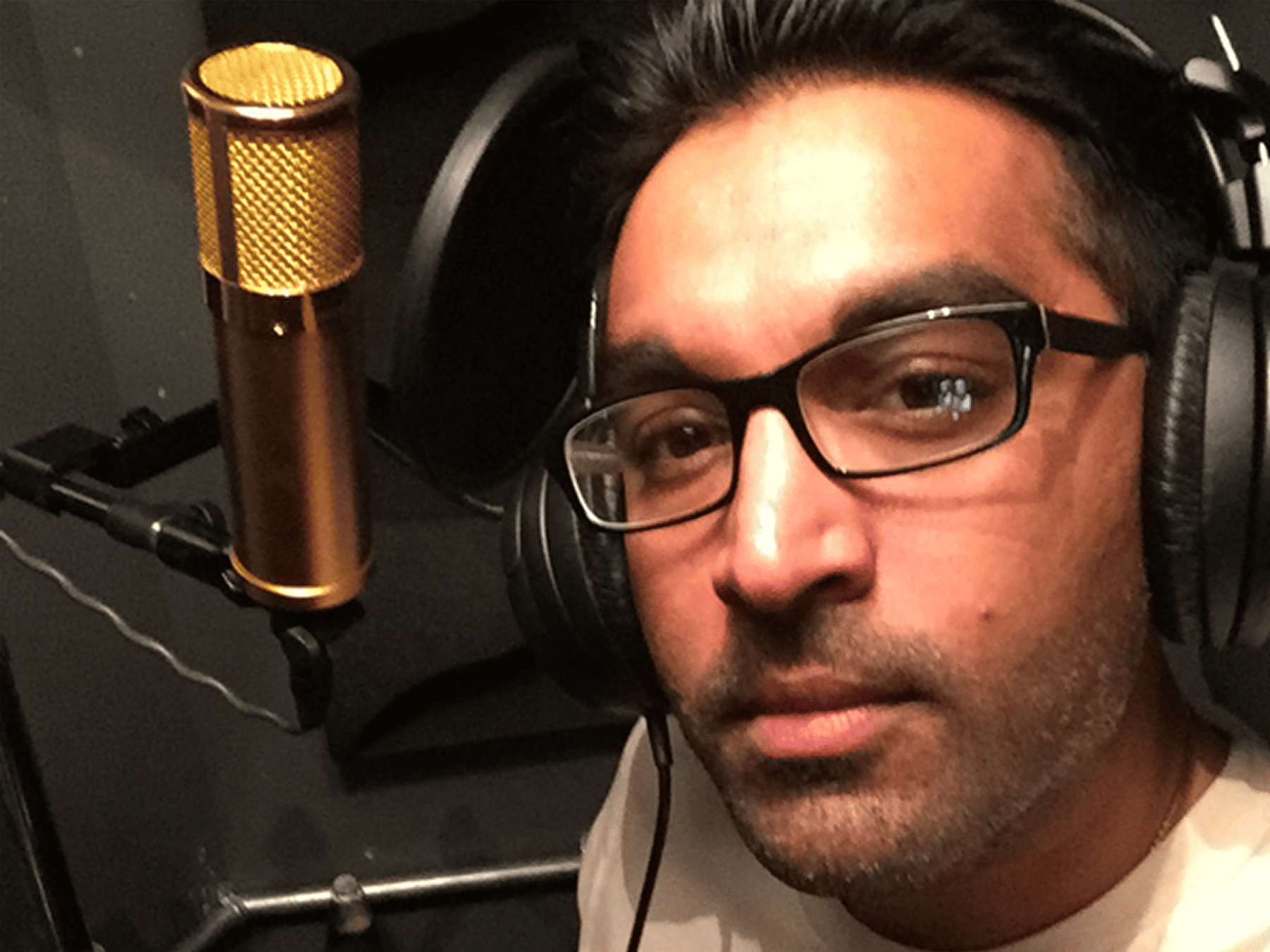
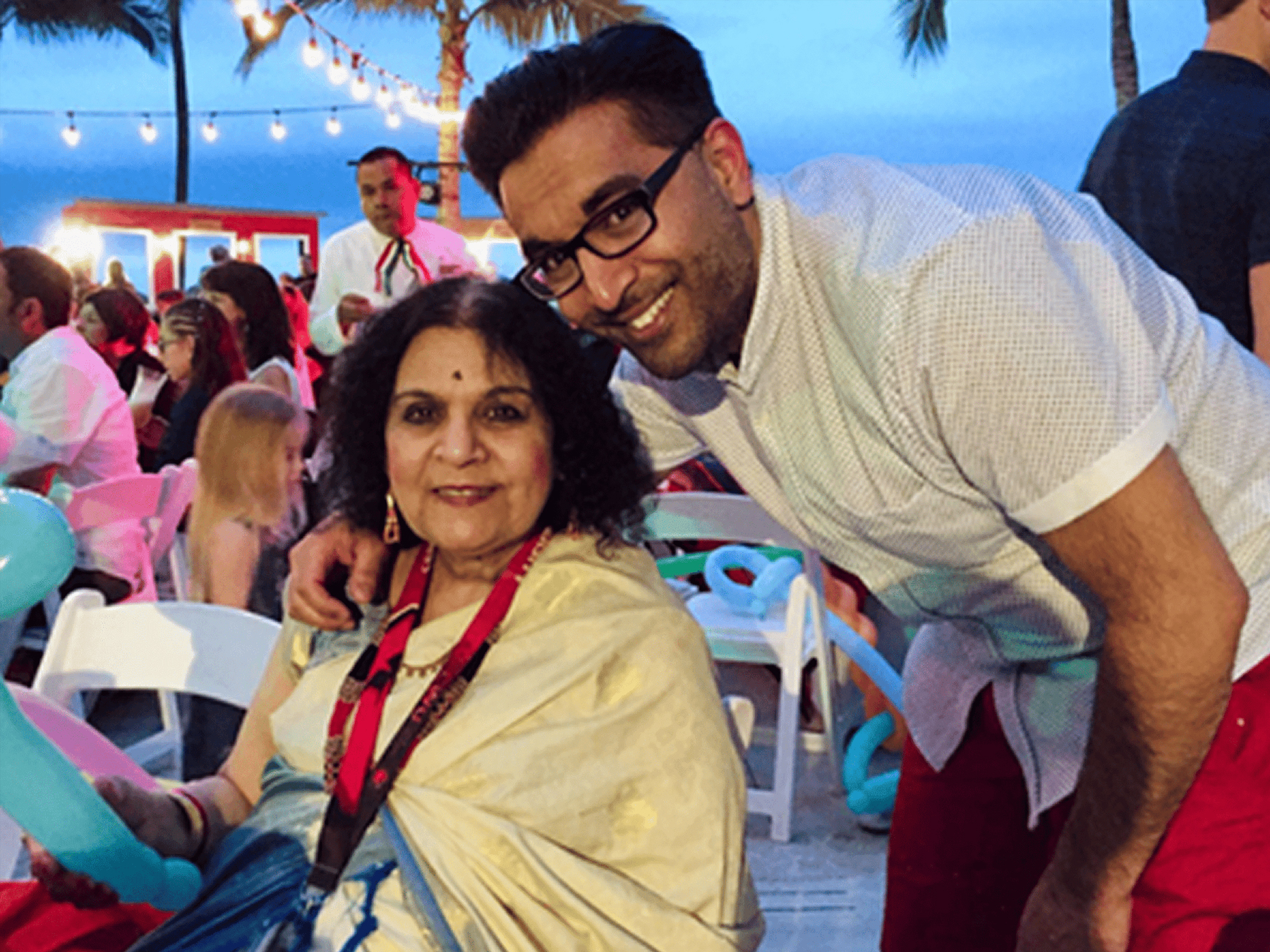
Still navigating the profound pain from finally accepting and embracing self-hatred, I intentionally chose to remain single, driven by a desire to avoid hurting others and to deeply connect with my mother, who preferred my sole company. I was tired of chiming in on conversations that I felt were not within my core values, like complaining and blaming others for my problems.
Boy, I've seen at least 20 psychiatrists, have had 6 therapists, over 60 paid coaches, and taken more than 20 medications that have caused me so many side effects. I started going to Cognitive Behavioral Therapy (CBT) after reading an article in the American Family Physician (AFP) journal about how it could help me with sleep and starting placing mindful tools in place mindlessly.
On the outside, I was moving, but inside, Mind Hygiene was anchoring something deeper. When I wrote, my cortisol levels dropped. I formed an oxytocin bond with myself, not built on applause, but on safety. I delayed dopamine by telling myself, maybe one day this will help someone. I reduced the hits on my amygdala by calming my fight-or-flight responses, not through comfort from others, but through discipline with myself. I still craved praise. I still wanted someone to tell me I was good. But for the first time, I didn’t need it to keep going. This marked the beginning of practicing Neurobiologic Jiu-Jitsu, consecrating my stress into strategy and solitude into circuitry. I wasn’t escaping pain. I was redirecting it, using it to train my nervous system in real time.
This was one of the best times of my life. Together, just the two of us, my mother and I traveled the world: Hawaii, Costa Rica, Aruba, Mexico, Vegas, and the Cayman Islands. It was a paradoxical chapter of healing, getting to know myself and my mother. The picture you see was taken in Puerto Vallarta. That night, my mother cried when we watched a night show at the resort. She said, “No one has ever done this for me”. Those are times when you know that you made it.
Even amidst intense personal pain, my unwavering commitment to a mission far bigger than myself compelled me forward, knowing I was positioned by divine purpose. Immediately following Hurricane Matthew, I traveled to Haiti, where I confronted devastation head-on. This profoundly impactful journey became the crucible where my consecrated mission truly began, a visceral calling that felt like it ignited not once, but three times over.
I have an inner that’s been burning inside of me to help humanity on a large scale, but I just didn’t believe I could do it. But this cleared up that doubt. In the town of Grand Boulage, residents face a lack of water, food insecurity, poor cellphone coverage, inadequate sewage, and no power. I am obsessed with bringing clean water and food to this town, Haiti, India, Syria, Ukraine, and then the whole world. I have developed personal connections with these countries. I have found the courage to believe in myself, knowing I can make a difference by helping to feed the poor, purify their water, and support those in emotional isolation, all without anyone cheering me on, emotional support from a partner, family, or friend, or support from a community of well-wishers. If one of the above were to happen, my mission could multiply. This is not a time to feel sorry for me. But my truth is forged in the crucible of monastic solitude. This is where Neurospiritual Soveriegnity was born.
At my speaking engagements and with my patients, I share that when you alchemize what you once saw as problems into purpose, your mission, vision, and purpose can become the North Star that steadies you through doubt, depression, anxiety, or the weight of others’ opinions.
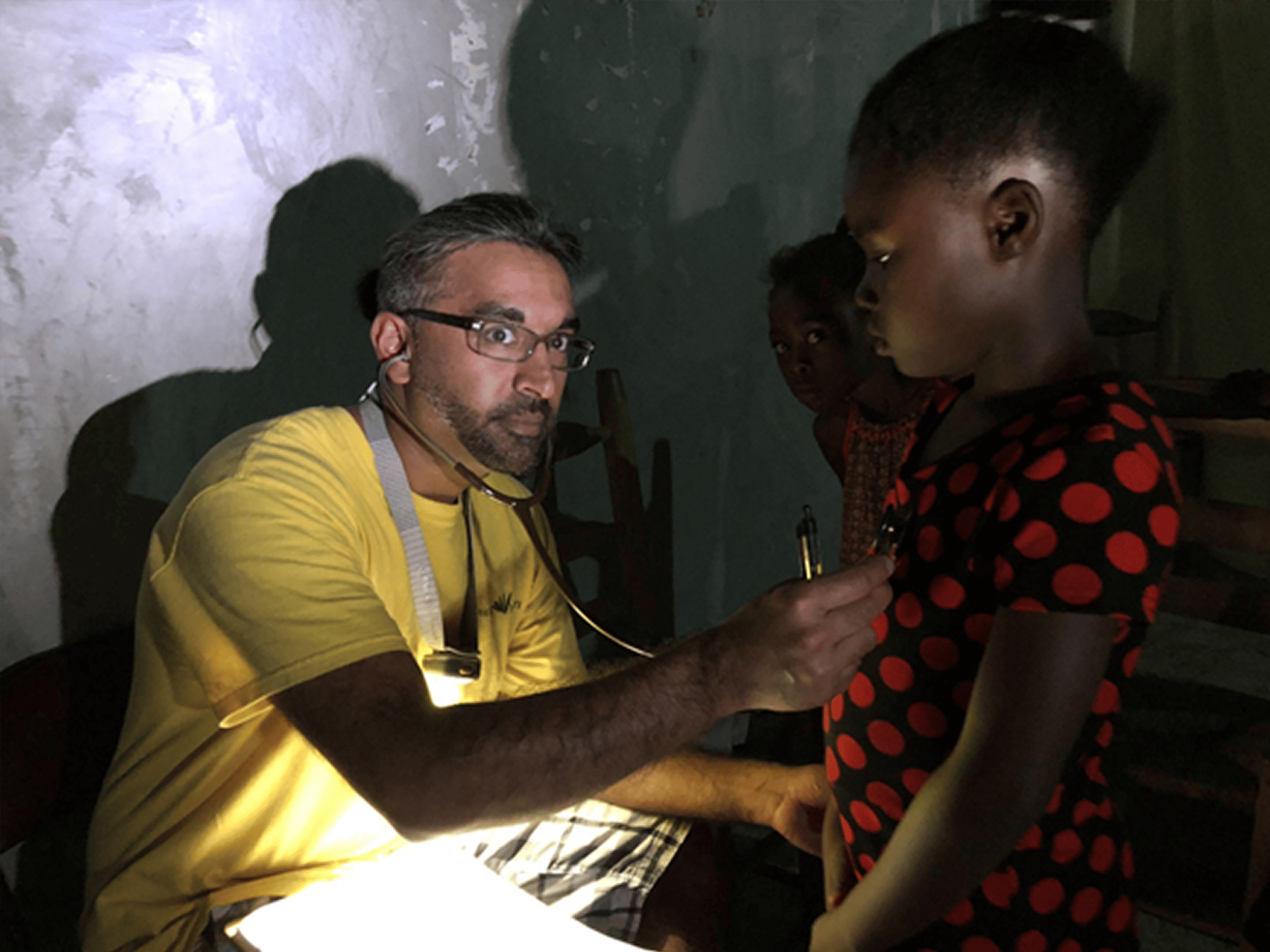
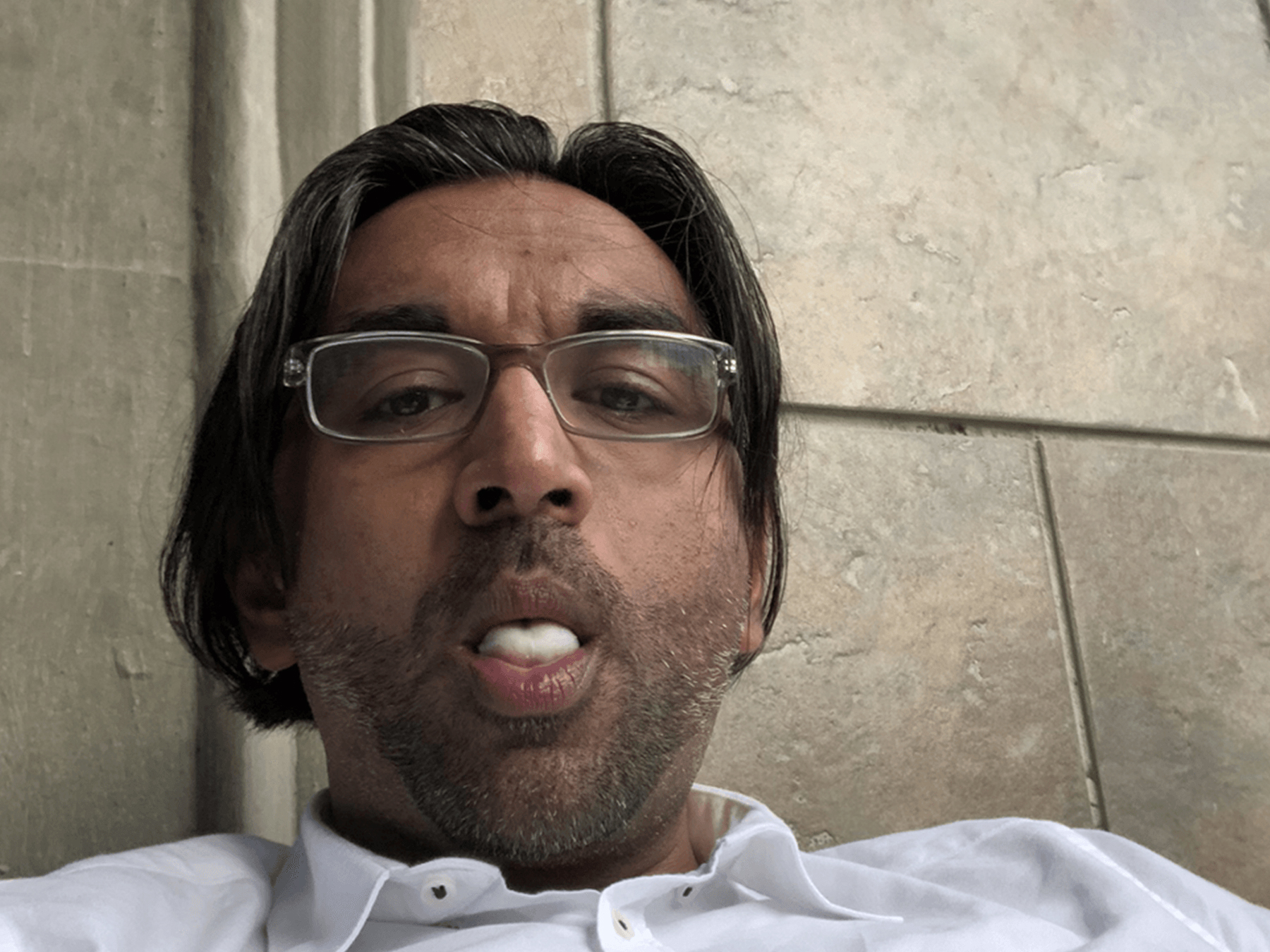
I was up all night in Costa Rica when I took this picture. I don’t know how I was managing to operate under the stress of $300,000 gambling debt, alcohol addiction, nicotine dependence, marijuana misuse, and cocaine abuse. I was surviving, not living. I had nicotine cravings, marijuana-induced paranoia, and cocaine crashes. I don’t know how I was functioning, only that I was running on shame, secrecy, and survival instinct. This wasn’t ‘rock bottom.’ This was life before I accepted I was drowning.
I was trying to fix my emotions, cope with my thoughts, and try to find ways to deal with life, instead of embracing and understanding myself. That resentment implicit bias led to neurological destruction. The only way I could fix my resentments and feel better was to drink and drug. And yet somehow, even then, the writer in me was watching, taking notes for the day I would inspire others. I have videos from that period as well, showing how I was in Neurochemical Consecration™ throughout all of that.
And if you’ve ever felt like you were surviving instead of living, know that even in that place, you can start collecting the pieces that will one day become your purpose.
This was taken at a rap video shoot that I put on a credit card, drinking alcohol and doing cocaine early the morning after staying up all night. The one interesting thing about this time is that, still, with the rap music, I was alchemizing all of those resentments and began the process of self-forgiveness through my raps. I even wrote in a bar that "It’s true, I’m a motivational speaker to myself, it is true - I’ll be speaking to others about this in my 40s, dude, God's work, I’m not confused." I was in the middle of a cocaine-induced manic episode.
This was one of the most embarrassing times of my life. Everyone rightfully shunned me. I was about to enter rehab for 3 months and would be monitored by the Washington Physician Health Program (WPHP) for the next 5 years.My concerned coworkers and friends intervened, leading to three months in rehab and a total of six months off work.
My plummeting patient scores painfully reflected the self-judgment I had. The more I judged myself, the more I judged others.There are selfie videos from this time, that I'll hopefully share one day.
There will be a time when I'll share this music video as well. Everyone saw me, and my childhood friends stepped in to help me. Since I felt so exposed, I felt it was GOD's way of saying: "This is happening to you so one day you can consecrate it (not overcome it), inspire humanity and fulfill your destiny."
This is what I tell patients in crisis. It may even reduce the current suffering by a few percent if they know that their story bears alchemical weight and will be a crucible for strength.
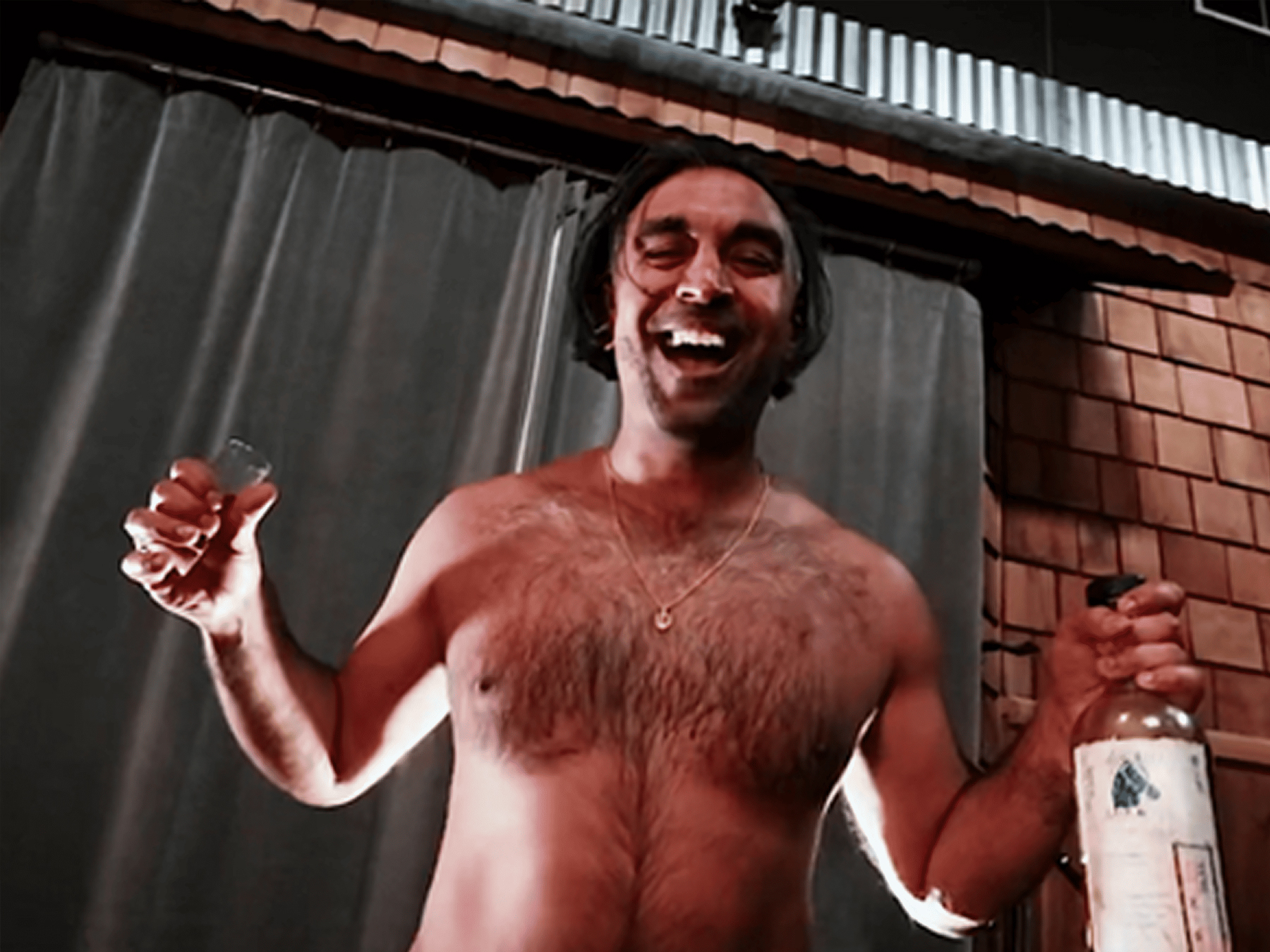
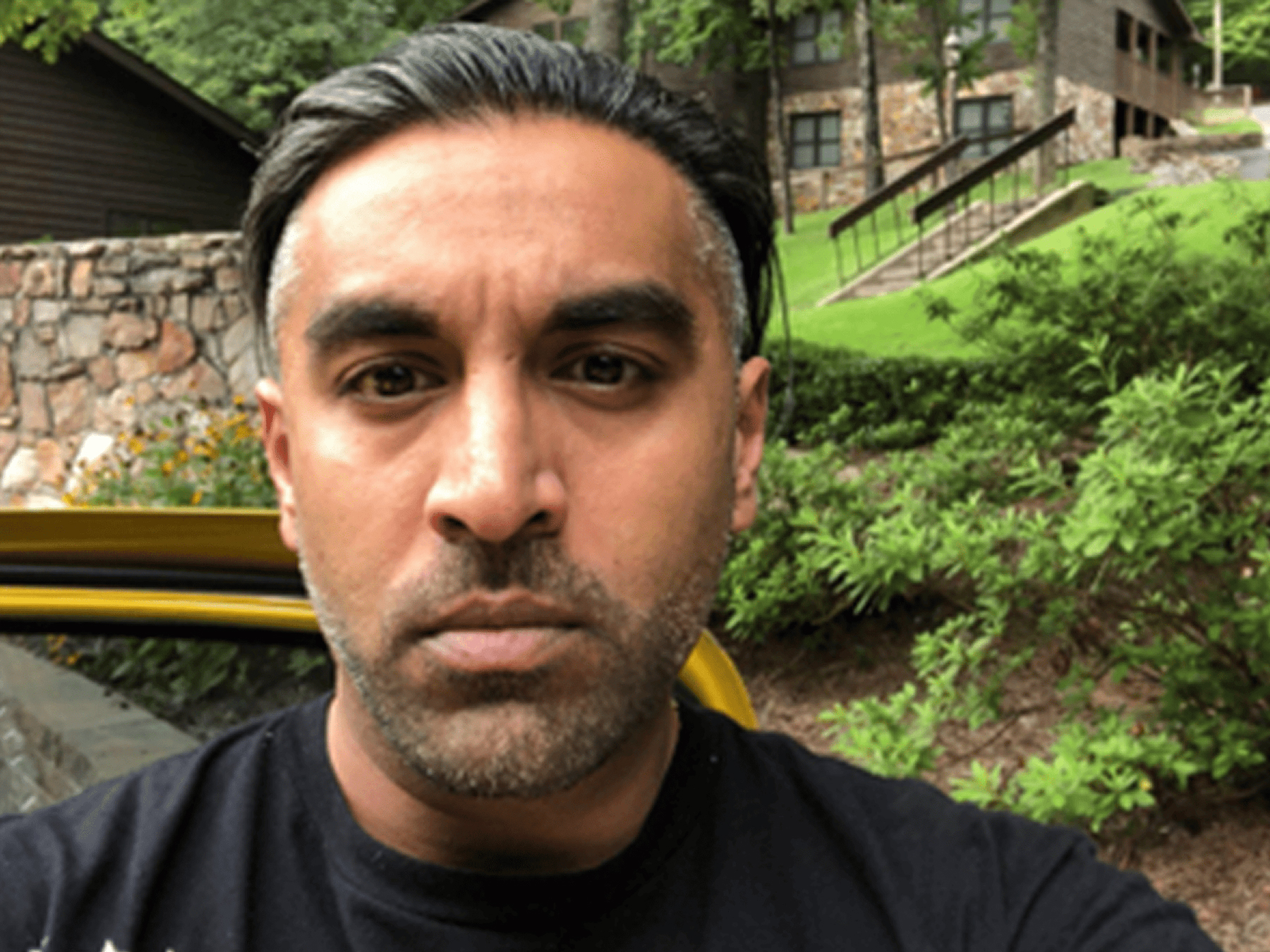
This picture was taken in Alabama about 30 days into rehab. I fully immersed myself in structured recovery. I entered a drug monitoring program and started intensive therapies like Eye Movement Desensitization and Reprocessing and Dialectical Behavioral Therapy. I was also prescribed multiple medications for anxiety, depression, Attention Deficit Hyperactivity Disorder (ADHD), and Bipolar disorder—diagnoses that had been given to me during that time. Every single medication I took gave me a problem and harmful side effects. That’s when I knew I had to control everything I could. Staying sober, eating better, practicing mindfulness, meditation, and whatever I could do to stop hating myself and salvage my career. That’s when Motivate You; Inspire Yourself® was born. I could only depend on myself and inspire myself. I thought that’s what everyone did.
What people need to understand is that everyone has seen me go through a cocaine induced manic episode. Everyone. Everyone I worked with, friends, family, and my mom. I didn’t have a choice. I had to prove to everyone that I could improve. That’s when I said, This will likely help someone someday. I kept my head down for 2 years, feeling embarrassed, and stayed quiet, doing what I could to maintain Emotional Freedom™.
I was going to Acceptance and Commitment Therapy (ACT), Cognitive Behavioral Therapy (CBT, Dialectical Behavioral Therapy (DBT), Eye Movement Desensitization and Reprocessing Therapy (EMDR), Rational Emotive Behavior Therapy (REBT), Metacognitive Behavioral Therapy (MCBT), Mindfulness-Based Cognitive Therapy (MBCT), and I obtained a course certified Mindfulness-Based Stress Reduction (MBSR) certification.
I went an average of 2-3 times monthly for the next 5 years, and now I still go 1-2 times monthl,y and I’ll never stop. However, attending therapy sessions wasn't the most effective part; what made the most significant impact was the intense daily writing with no breaks. Writing and reprocessing the memories, over and over, maybe even a few hundred times over several years, until I felt I had no resentments towards myself and nothing bad to say about myself.
But even after starting treatment, I still got bad patient scores and was given a letter of termination. They said if I got more reviews like that, I’d lose my job. That’s when I brought the letter to my EMDR therapist, and I cried and said, “This is not me. I’m not a bad guy. Please help me.” It was just that hard to forgive myself and accept who I truly was.
The photo on the left is my brother, modeling for Davidoff in New York in 1998. He was a technical writer, in the best shape of his life, and filled with dreams. The photo on the right was taken just a few years before his death. By then, methamphetamine and alcohol had taken hold of him. He had signed one record deal, and BMG Music once paid him fifty thousand dollars for a single song. But it flopped. That failure devastated him. He had always wanted to be a singer. Ajay could produce, write music, produce tracks, choreograph, dance, and was first chair in Alaska playing the violin for 3 years in a row.
On March 19, 2019, my brother was found deceased in his apartment after 17 days. I had tried to put him in rehab three times. We were separated when I was just eight, and though we reconnected here and there, we spent years apart. I emailed him just a few weeks before he passed, telling him to come live with me and my mom in Seattle. I had brought him to Seattle to live with us a few times, but it just didn’t work out.
When the woman from the funeral home told me not to look at his face, because it had caved in, I sat across from him anyway. And I made a promise. I told him I would make his life worth it. That's when I said, I'll work hard to learn speaking and rapping from the ABCs with a beginner’s mindset, so I can inspire the world with your story — and be a rapper and singer in your honor.
That was the moment Alchemical Awareness was about to take off. That was when I entirely consecrated to GOD’s plan. I didn’t know how I’d get through it, but I knew I would. I’d find a way to validate myself, to transmute pain into purpose, and to inspire others who had ever been called broken or dumb or too emotional. That was the start of Neurochemical Consecration. That was when I chose to play Emotional Calculus™ with fear. To learn how to speak. To learn how to sit still. To go to therapy. To walk with GOD. To help others see what I wish someone had helped my brother see.
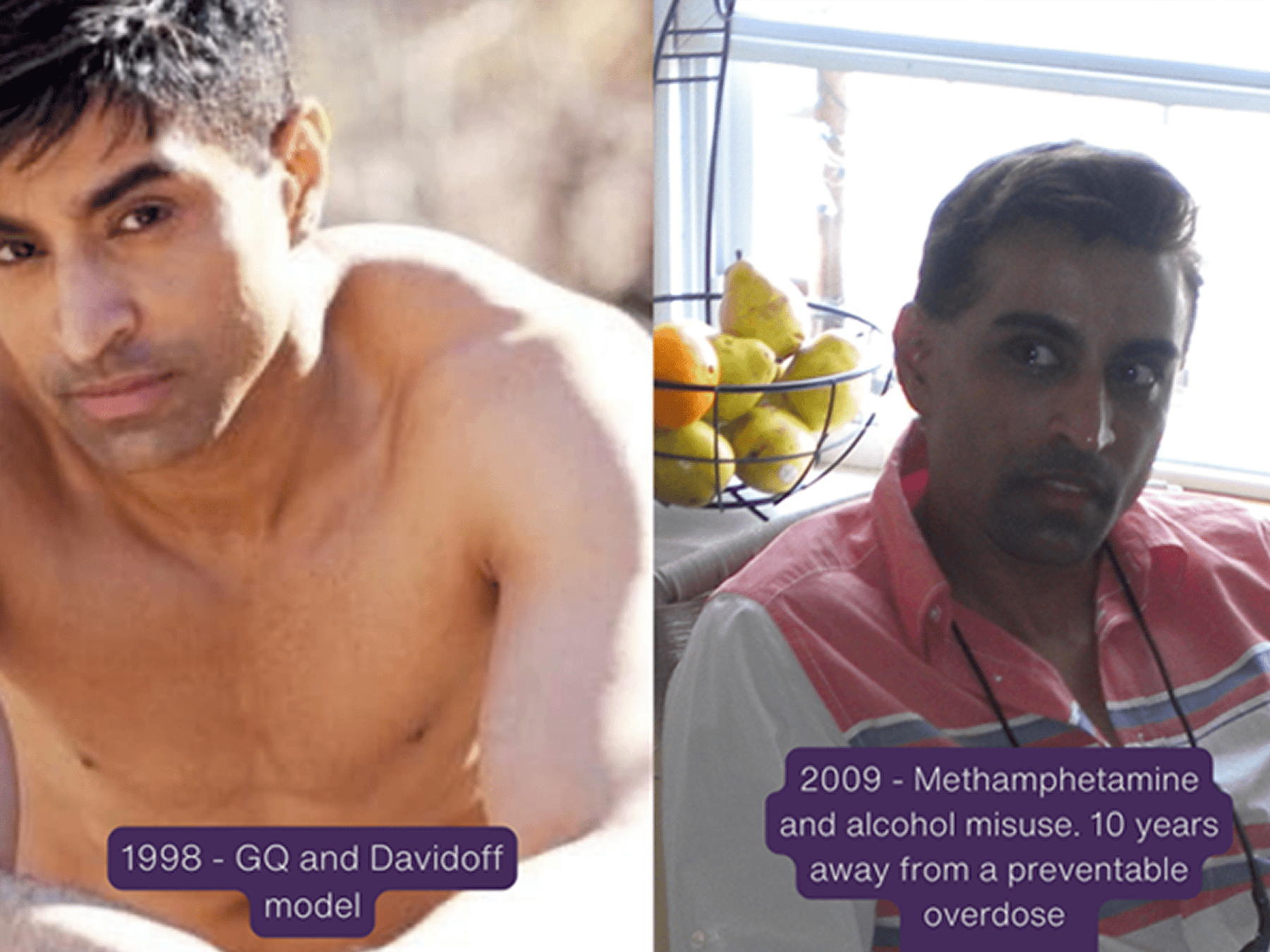
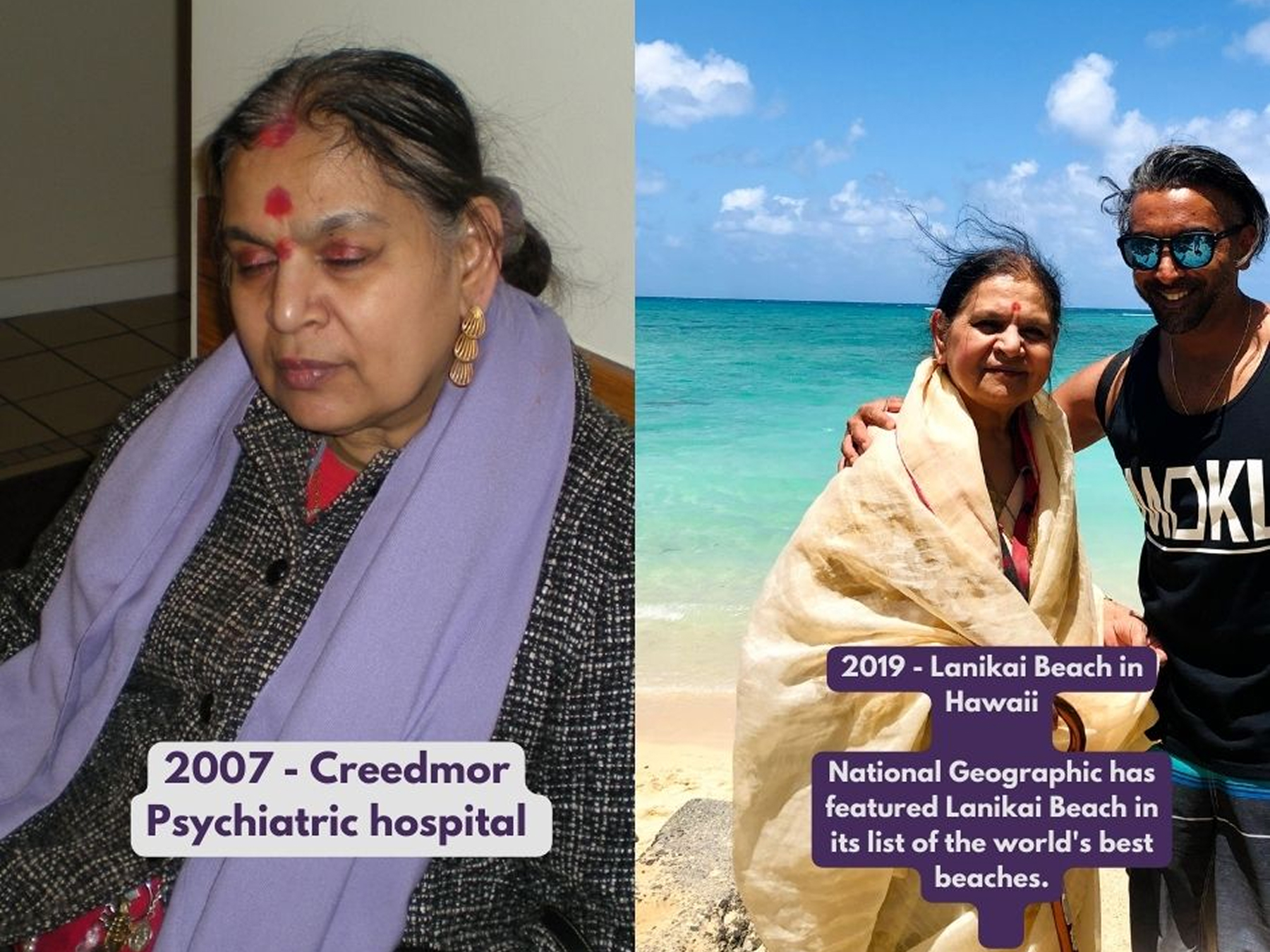
Imagine this: being on welfare, your car being repossessed, in debt, broke, and about to be dead or in jail for the rest of your life. Imagine this, being in the 4 walls of a psychiatric institution for hours. Then days. Then years. Then decades on psychotic holds, being held down, taking medications, and having no family support. Since my mother was alone for all of these years in psychiatric lockup, there was a part of me that felt the duty to be in monastic solitude out of guilt for her journey and my intrinsic desire for service way beyond my capacity as a board-certified family doctor.
At age forty-one, on February 2, 2021, at 3:36 PM PST, after seven profound years of genuinely getting to know my mother in the final chapter of her life, I watched her pass away. Just five days before she died, she told me, "I’m tired of living with mental illness." And she meant it. She was ready to go. As she died, I made a sacred promise to use every fiber of my soul to help as many people as I can. That promise became the catalyst for Emotional Calculus and Consecrated Courage™. I knew that I had to do it alone. If I can Motivate You; Inspire Yourself® to do it yesterday, I could do it again today. Let’s just start off with 1 second at a time.
After she passed, I stayed in that home for two months and wrote through every single photo we had ever taken. I cried, deeply and loudly, sometimes for thirty minutes at a time. But I knew if I kept going, it would get better. I kept writing, on dry-erase boards, flip charts, and scraps of paper. I processed my grief in real-time through Mind Hygiene, not by fixing, overcoming, or numbing it, not by coping through alcohol or food, but by accepting and embracing it. Alone. I did it alone with no one's support. It's not lik I couldn't have reached out at the time, but I felt I needed to do it alone. I knew that I was deeply embedded in Alchemical Awareness, but didn't fully grasp it at that time.
And that was the beginning of something sacred. I committed to feeding the poor, purifying water, and inspiring the world by alchemizing our collective pain, mine, my brother’s, and my father’s, into undeniable purpose.
After my mother's death, I chose to become single on purpose again, to understand my mission better, and experience the grief of my mother alone. I felt this compelling force to be single and process this experience alone before I hurt someone, and then in turn myself. I would like you to know that I force myself to do everything I do. The path of least resistance is much easier than forcing yourself to do things that you know will start producing results in 3-5 years.
I relentlessly used writing and rapping at home to try to fix my emotions and overcome my thoughts, only to realize that these attempts at external control were futile. That realization was the spark. It marked the beginning of true Neurospiritual Sovereignity, the slow, difficult path of accepting and embracing myself, even as I still wrestled with deeply ingrained beliefs that I was stupid, dumb, mentally ill, and everything people had labeled me.
I had six therapists and paid for over sixty coaches. I enrolled in one three-month coaching program and one nine-month coaching program. I was part of Alcoholics Anonymous and Narcotics Anonymous and went to meetings regularly. But even then, I had no one cheering me on. No one was telling me I was doing great. No one is saying, "You got this."
That’s when I knew I had no choice but to rely on myself and build a strong sense of self-belief in my limitations. I had a hard time buying into the concept of forgiving others. I enjoyed focusing on myself and forgiving myself for things I did to others and my body. I found power in that. The discovery was a superb high for me. Interestingly, when I forgave myself, I automatically started developing empathy for the biggest abuser. My dad. Amazing.
That’s when ACES Your Life and Mind Hygiene was born.
EMPOWER ACES:
Accept Your Awareness
Communicate Your Compassion
Embrace Your Empathy
Soften The Process
DISREGARD FACES:
Fix Your Thoughts
Anger (Overcome)
Control/Cope With/Deal with
Erase (Block it out)
Strong
This is the first time I said I love myself.
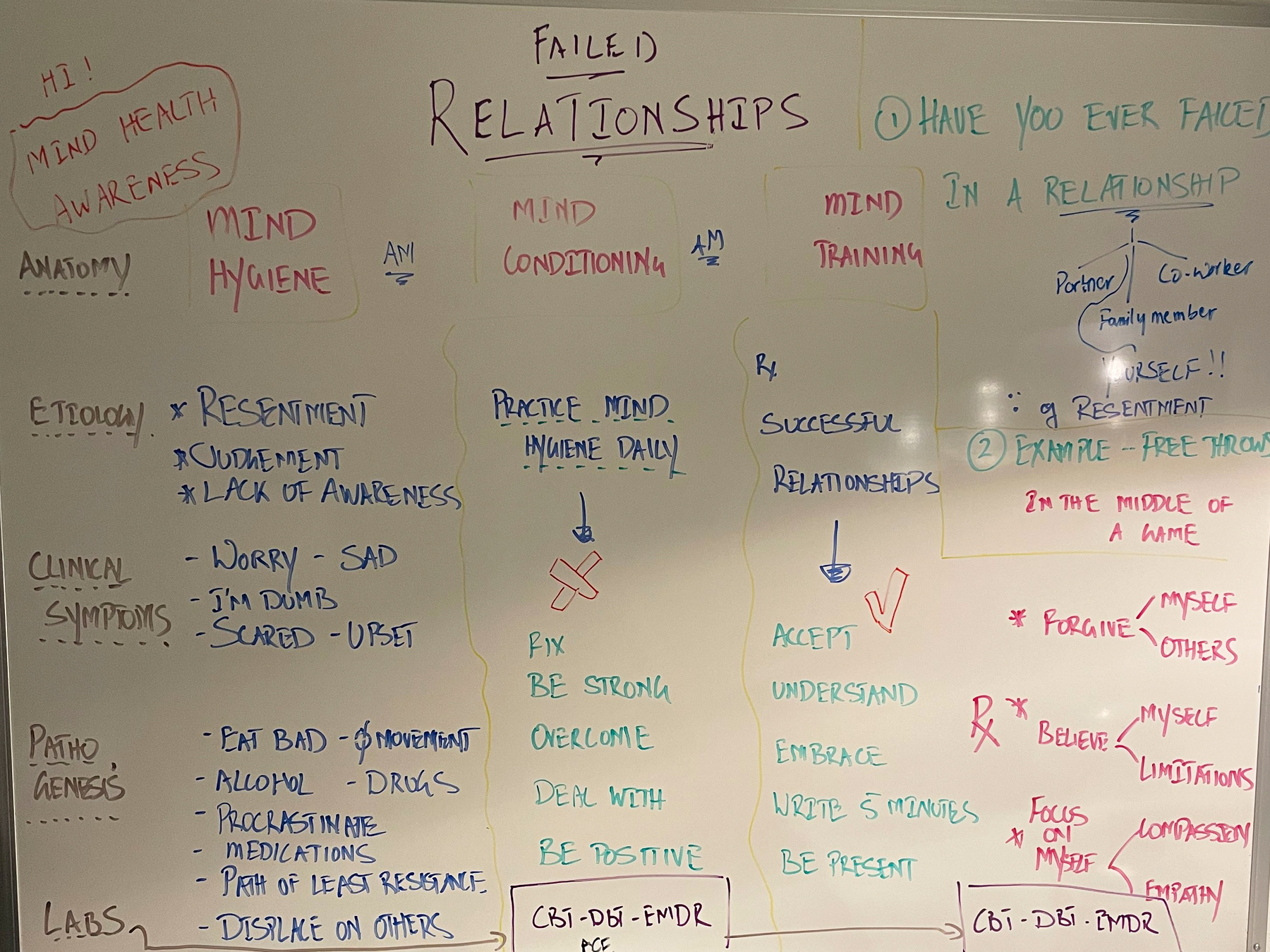
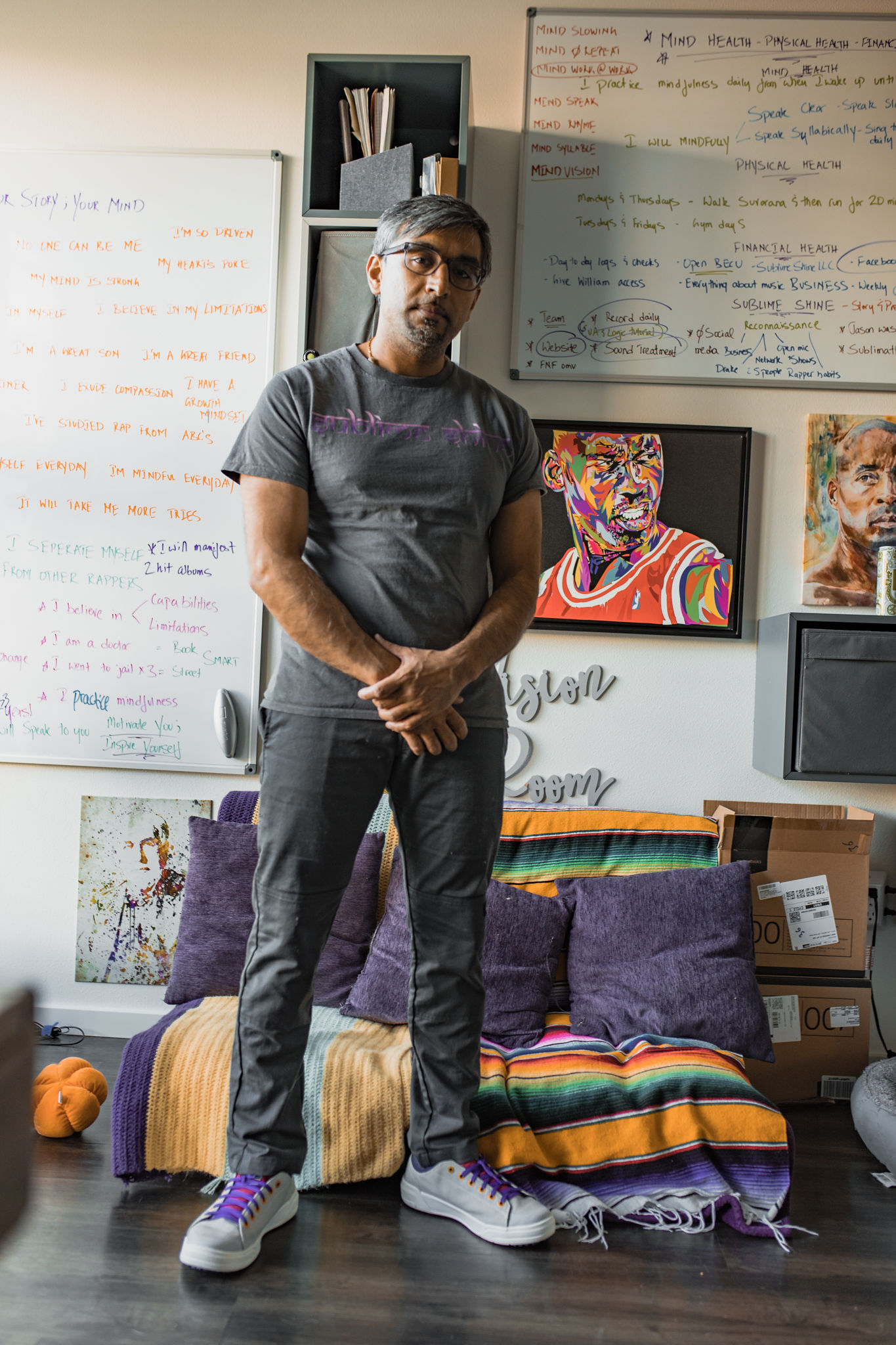
The photo you see here is one of the happiest seasons of my life. I lived in a 526 square foot apartment, and I was determined to find out exactly what my purpose is on earth.
After my mom passed away, I sold everything I owned and moved into that apartment with my two pets, four vision boards, flip charts, and stacks of writing and rap lyrics.
At age 42, I moved to Seattle, lost fifteen pounds, and began embracing intentional solitude in a small apartment. I dedicated myself to even deeper writing, self-reflection, and purpose. This period marked a profound full circle. I was now diagnosing patients with the very mental and emotional battles I had once carried, and helping them more than I ever could have. From having the worst patient scores in healthcare networks, I started to have the best patient scores in healthcare networks! It was the 2nd most significant achievement in my life, the first being taking my mom out of a psychiatric facility. I now have 840 glowing patient reviews online, and hundreds of internal reviews that talk about how I listen well (I listen well?!), I'm compassionate (who me?!), I show understanding and relate well.
Well, that wasn't difficult, was it? I stopped focusing on others and began worrying only about myself. When I operated in my day-to-day life like I did when no one was watching, my patient scores skyrocketed without me even trying hard. During that time, I continued refining Mind Hygiene, developing Motivate You; Inspire Yourself, and slowly stepping into what I would come to call Neurospiritual Sovereignty.
This was the moment my lived experience began to crystallize into teachable, evidence-based frameworks. It was also the moment when the idea of becoming a full-time speaker no longer felt like a dream, but a calling.
This was my sixth year of being single by choice. As of July 31st, 2025, I have been single for nearly eight years, on purpose. I chose monastic solitude to develop myself, to consecrate my suffering into service. Through that process, I became the urban monk.
In my speaking engagements, this is where I tell audiences that you, too, can utilize all of the resources available in your country. Go home, do the homework when nobody is watching, and develop Neurochemical Consecration, where you believe in yourself and validate yourself. When you do that, you’ll be able to achieve your goals, reach your dreams, and fulfill your purpose by fully believing in what you’re good at and accepting what you’re not.
All these concepts would not have been born if my patients had shown me compassion, empathized with me, and encouraged me to help others. I’ve learned so much from my patients, and I will cry happy tears writing this, and say Namaste to the 130,000 patients I’ve seen across my career. Namaste
Can you believe this?
It’s 1996, and I’m sitting outside the courtroom in downtown Seattle, about to go away to jail for the 3rd time for grand theft auto. Fast forward to 2022, I’m carrying donuts into the same jail I was at as a teenager, about to inspire the youth. I connect with them well because I never gave them advice. As a board-certified practicing family doctor, I stopped giving advice. Instead, I inspire through daily action, paving the way for possibilities, and I’m the same way when no one is watching me. I think that resonated with them and my patients; we developed a special bond among shared struggles of overeating, self-loathing tendencies, substance misuse, and seeking external validation.
I still hadn’t started talking about sobriety until about four years in, but I felt comfortable speaking to the youth about it. I was extremely embarrassed about being part of the Washington Physician Health Program (WPHP). I was being monitored, going to Alcoholics Anonymous (AA) meetings regularly, and doing urine drug tests. I always had Alchemical Awareness, and I knew that there was a greater purpose to my drug monitoring. I would share it with a patient here and there that I was sober, but I largely kept it to myself. I thought I was still just a stupid doctor, just a drug addict with mental illness. So much so, I wrote a book called "The Dumb Doctor." I started sharing these stories at the juvenile detention where I was locked up as a youth.
When you engage your patients, customers, or coworkers by first understanding them and empathizing through short, vulnerable stories, you create a deeper connection that allows you to relate to them, and for them to truly trust you without being performative.
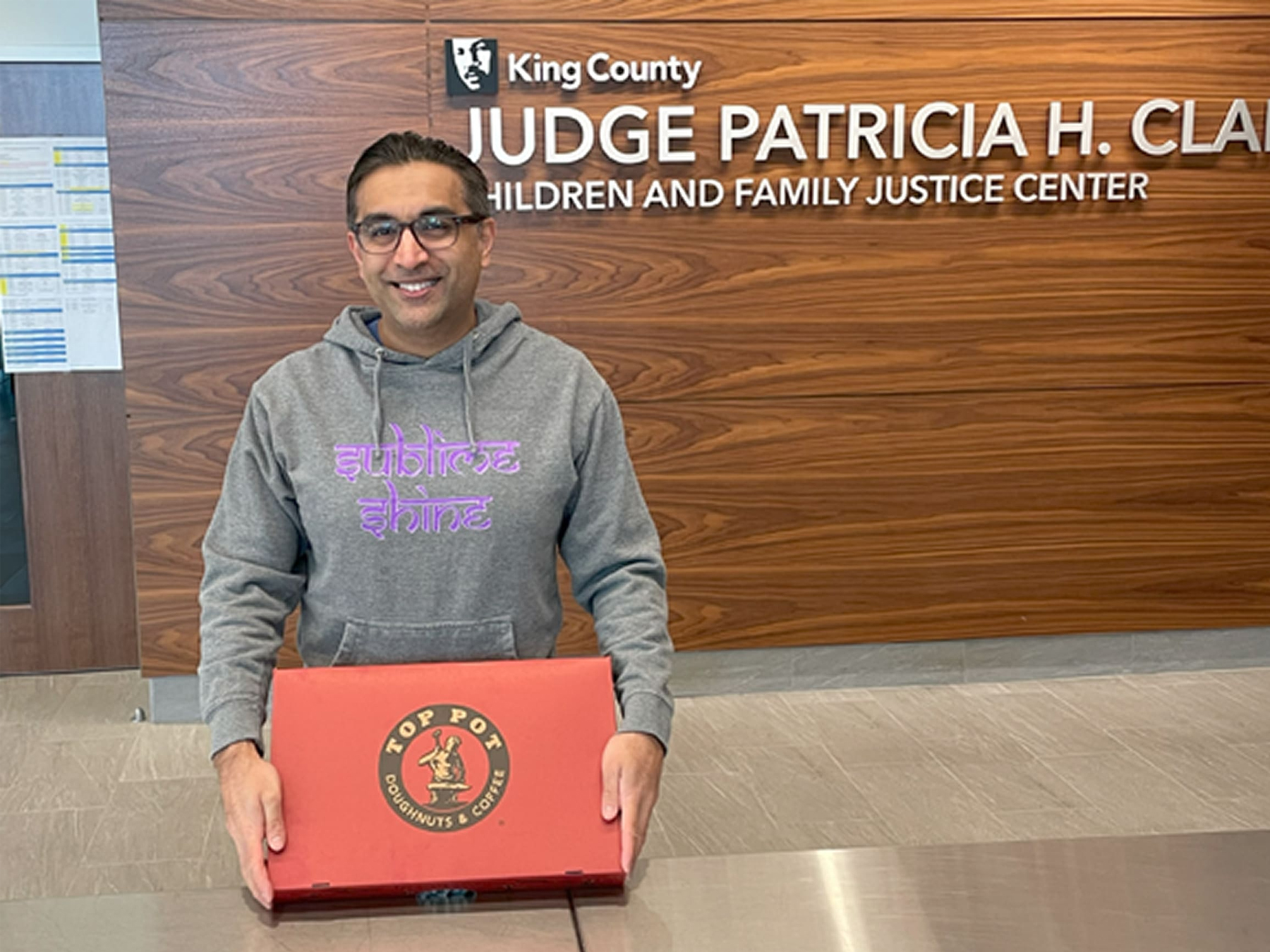
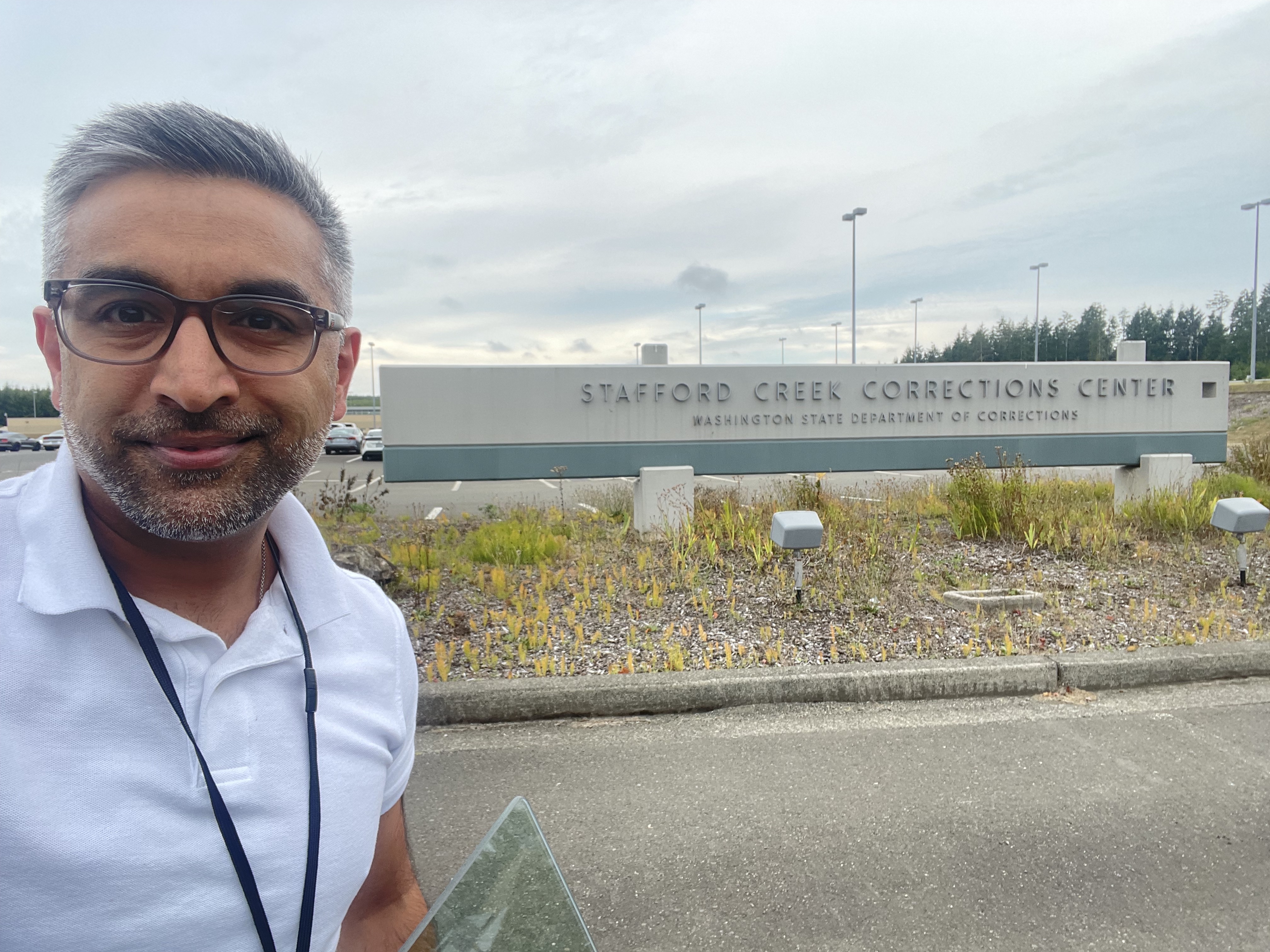
Can you believe this?
The photo below, just under the juvenile detention image, is from my last day as a prison doctor at Stafford Creek Corrections.
1996: I’m in a courtroom, an orange jumpsuit waiting for me, about to be hauled away to juvenile detention.
2023: I’m in the medical director’s office, a white coat waiting for me, about to see my first patients at the prison.
Back in 1999, when I was blessed with scholarships into medical school, I told my Creator: “I don’t know what it looks like, but I will give back.”
And here I was.
Inside those walls, I learned what compassion, forgiveness, and empathy truly mean. Some of my patients had been there for five years. Some for eleven. Some for twenty-two. Enough time to find themselves. Enough time to inspire others that self-forgiveness is the true path to Emotional Freedom.
One of the first men I met kept his head down and said quietly, “I was just a kid.”
I didn’t ask what he had done.
He was my patient. My only job was to care for him.
And in that moment, I realized….it could have been me.
One day, I’m going to jail as a juvenile.
The next, I’m managing tuberculous meningitis, consulting with a pulmonologist on a hemopneumothorax, and delivering life-or-death medicine inside a prison clinic.
From an orange jumpsuit… to a white coat.
From a cell… to saving lives. Amazing.
What an amazing life.
When you take the time to understand yourself and alchemize your resentments into purpose… when you play emotional calculus with fear and consecrate your courage… you can motivate yourself and inspire yourself to help others, through your words, your presence, and your writing.
This pic was taken of me in bed with pounds of sugar in front of me from DoorDash and Uber Eats. Sugar was my best friend and never turned on me. I was okay with it then. Even with all the bold external shifts I had made, I couldn't stop eating sugar. I was in a deep internal battle, and to be honest, I didn't have much support from anyone. But it was in that solitude that I truly started to embody Neurochemical Consecration and Neurospiritual Sovereignty. That's when I consecrated everything: every breath, every choice, every thought, entirely dedicated to service.
I was still struggling. I had gained fifty pounds. I had a full-blown sugar addiction. But even after my mom died, I never went back to drinking, or smoking cigarettes, or using weed. And that right there was proof of fundamental transformation, and I knew that Mind Hygiene was special: Writing. Reflecting. Rewiring. Every day.
I was actively living out the process: Accept Your Awareness, Communicate Your Compassion, Embrace Your Empathy, and Soften The Process. That's what finally helped me stop being mean to myself.
I started writing on my dry-erase boards 4-5 times weekly. Increased protein | No sugar | No carbs. I wish I had written down "I am the person who does not eat sugar, eats low carbs, and eats high protein. I would've believed it about myself. I didn't believe I could do it, but I figured that if I wrote it enough times, it might just happen one day.
This further underscores that you have a 42% of achieving your goals by virtue of just writing them down. Evidence shows that Mind Hygiene will help you decrease your anxiety and stress by 70% if you do it regularly.
3 years later, I'm entirely off sugar. That was because I just kept training my mind.
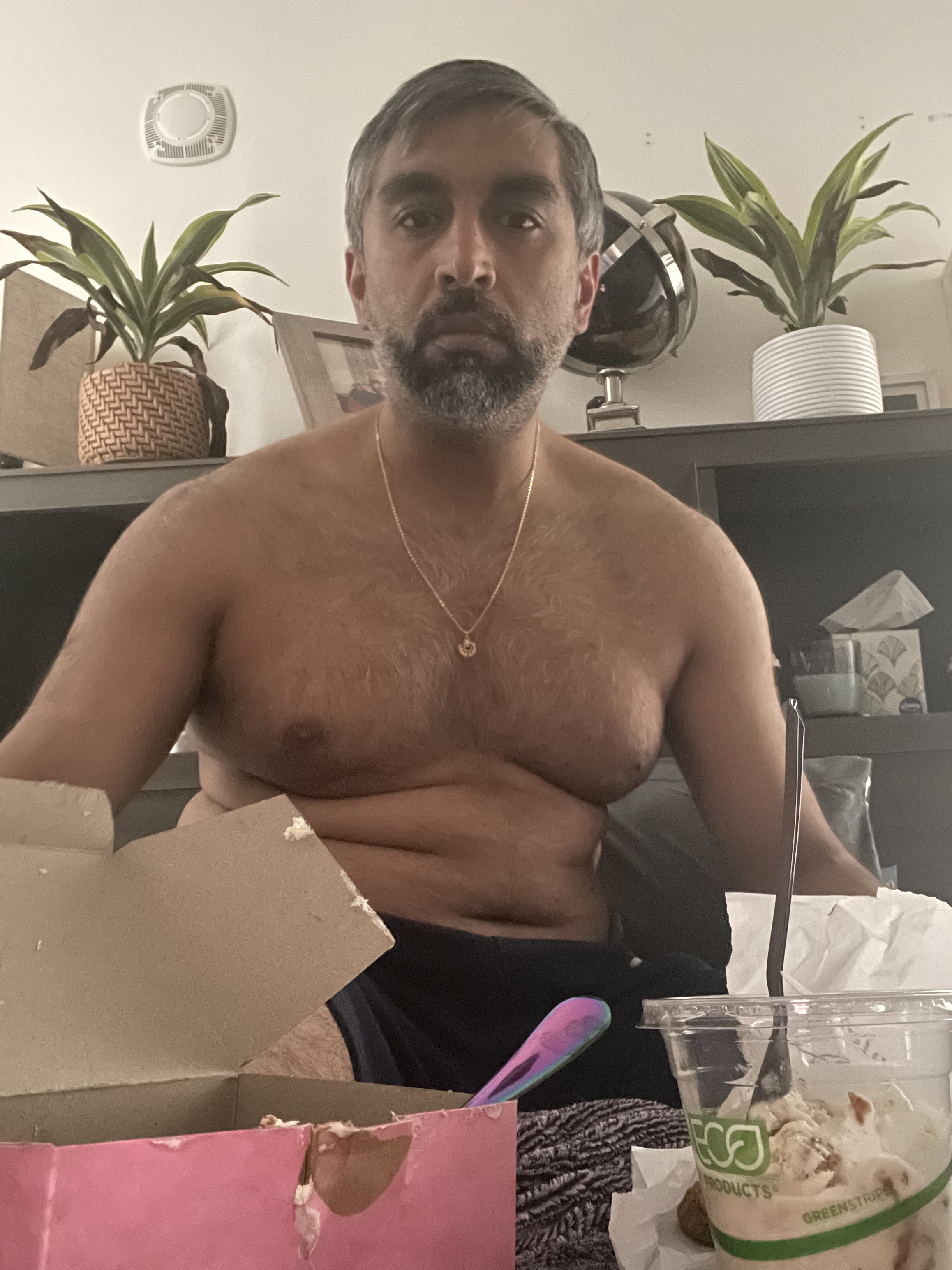
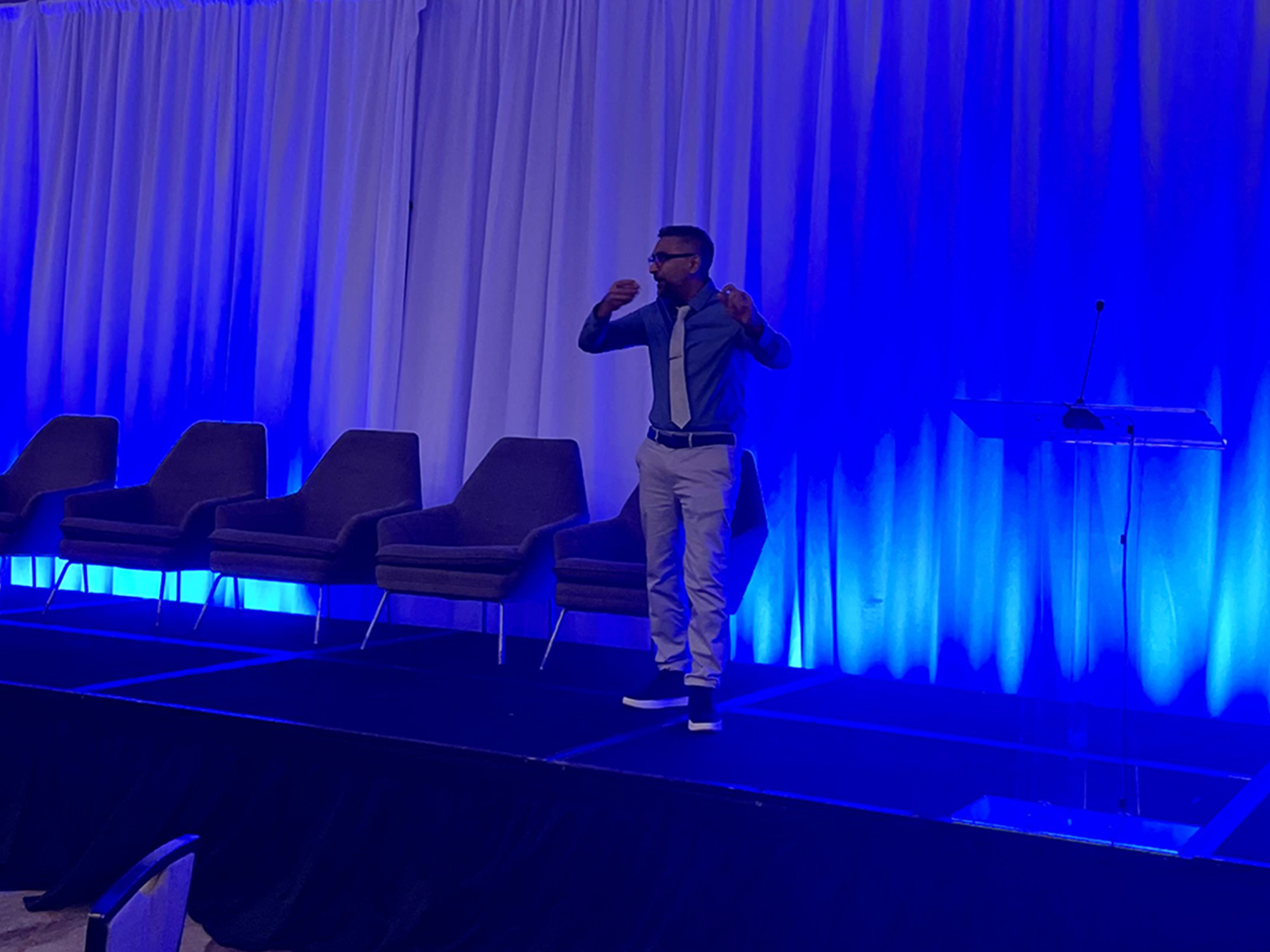
I began receiving paid speaking engagements worldwide on topics such as self-love, self-reliance, and Motivate You; Inspire Yourself, demonstrating how Mind Hygiene helps people cultivate kindness toward themselves and engage in empathetic self-talk. I had been speaking for free at the juvenile detention center, the prison, and locally since I was 42.
I consistently donated 30% of my speaking fees to feed the poor and purify their water. Outwardly, the impact was growing. But privately, I still wrestled with the desire to be accepted by established circles. I believed in myself, and I strongly believe in my limitations. But I also wanted to be welcomed.
At one of my recent speaking engagements in Menlo Park, an attendee pointed out that consecration is not a disruption, but an awakening. We talked about how transformation can be fleeting, but consecrating your soul allows you to reside in the Clouds of Emotional Freedom™.
I mean, I was the “dumb doctor” once, right? The drug addict. The mentally ill one. The guy with the worst patient scores. I’ve got 840 glowing reviews from patients whose lives I showed up for. Wouldn’t you want someone like that to empower you?
Now? I don’t blame anyone. I don’t gossip. I don’t talk crap behind anyone's back when no one is watching. How the heck do you think I could live alone in peace otherwise?
One of the coaches I invested in, who does not take on many clients, and two of my therapists told me the same thing: “Your growth scares people. You’re a mirror for what’s possible.”
That dissonance eventually led to my quiet excommunication from conferences, speaker circles (not all), and being ghosted by speakers. But I don't think I'm special, this is very common amongst speakers from what I hear, but it is a common part of dating, friendships, and life as well. Believe me, I'm used to rejection, so much so that I have the rejection tool kit meditation.
Saaru is a South Indian comfort food.
SAARU Meditation:
Smile
Accept Defeat
Acknowledge GOD's work
Responsibility Transfer To GOD
Usher In Uncertainty
Just repeat the SAARU meditation until it becomes boring!
The one thing that really got to me was that “Don’t you want to help me help others?” “Dang, but I got 5 ovations in one keynote?” I still go to Toastmasters regularly. "Should I do the Starburst Toastmasters competition?"
It took me two years to speak about this. I was embarrassed. I didn’t realize at first that the message of Neurochemical Consecration would challenge the performance-based model of compassion. But now I understand why.
Here’s one example: we cannot truly be compassionate toward others unless we are first compassionate toward ourselves. If even one percent of resentment remains inward; if we blame others for our pain; if we carry even a flicker of condescension, judgment, or use the word hate at all; if, even for a second, we curse someone under our breath; if forgiveness doesn’t include self-forgiveness; or if we exhibit traits like condescension, lack of understanding for others’ pain, or judgment, then our external compassion, empathy, and love risk becoming performative.
You can only stop judging others when you stop judging yourself, even when no one is watching.
I guess… not everyone wants to hear that.
The picture on the left is someone who dressed for approval—his Mission, Vision, and Purpose (MVP) was to be liked by everyone at any cost. The picture on the right is someone I’m still learning to embrace: a man with no friends, no family, no partner, and no community to support his inner desire to feed the poor and purify their water. I stopped spending time with people who complained, blamed others, or criticized systems without taking action.
I stopped hating myself for using sugar as my best friend for three years. On December 24th, 2024, I quit sugar for good. I was alone for Christmas, as usual, but this time I was ready. I told GOD, “I’m ready to live in monastic solitude forever and dedicate my life to service without support from a friend, family member, partner, or community.” And I meant it. However, my impact would be heightened multifold if I were blessed with the abovementioned.
That same period, I went through financial consecration. I cut up my credit cards and stopped spending on anything that didn’t serve the mission. I already had enough—clothes, a home, my pets, fresh food, and a purpose. What more could a man want?
If you want to make your deepest impact, you may need to consecrate your own habits, what you consume, how you spend, what you give your attention to. When you release what holds you back and commit fully to what moves your mission forward, something happens. GOD begins to bless you in ways you didn’t have to ask for.
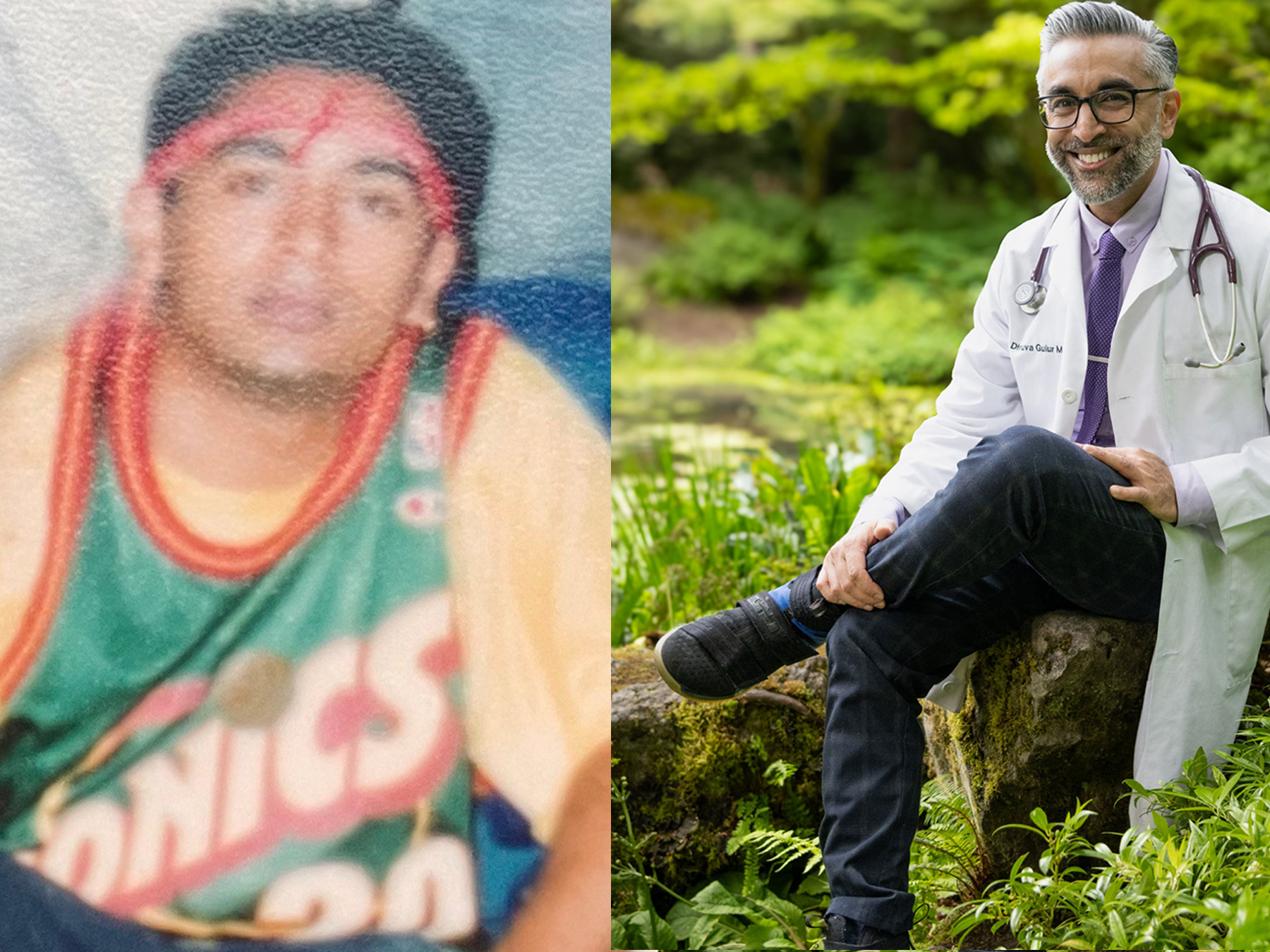
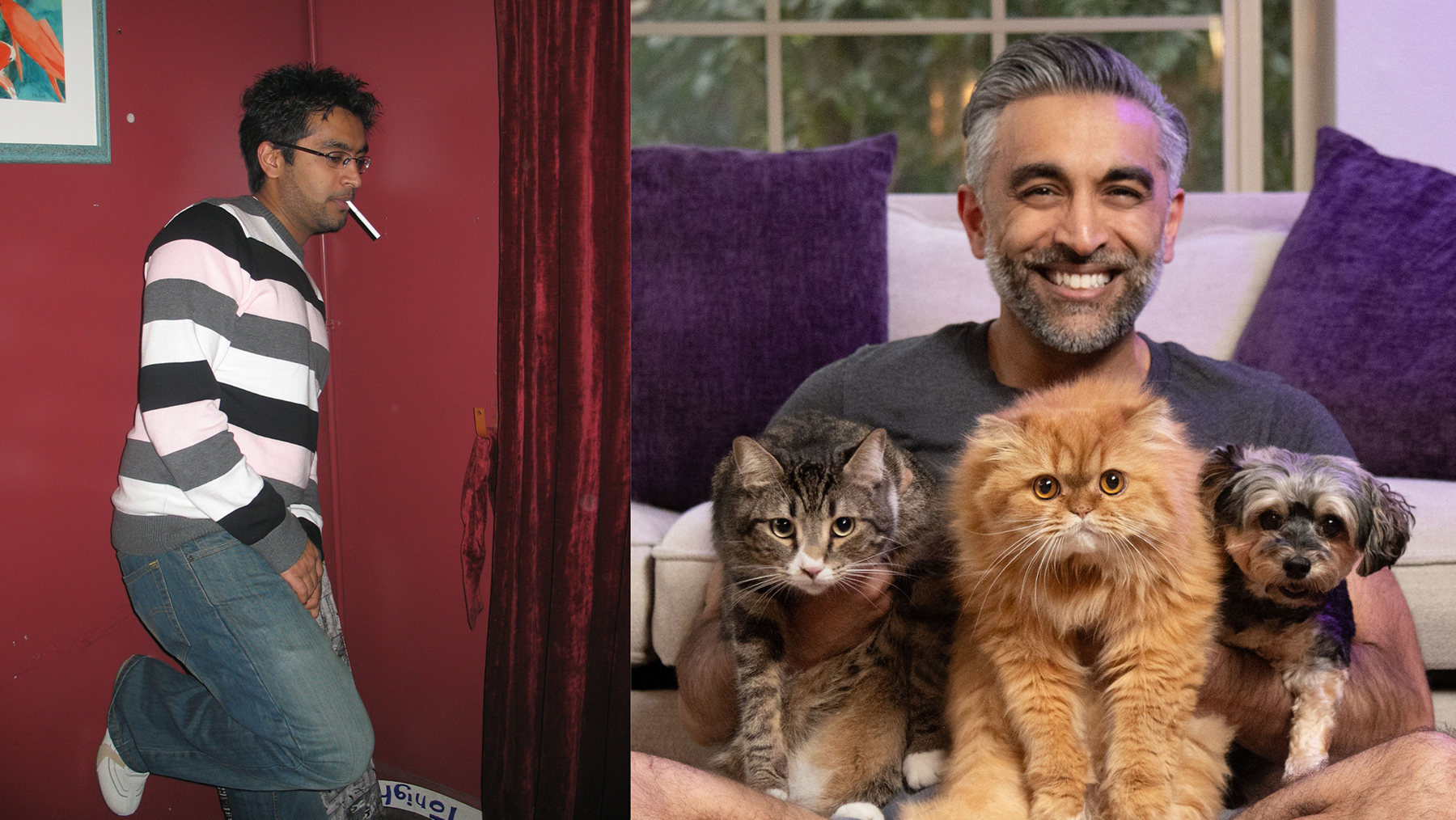
Now, I find comfort in my three beloved pets, who are always by my side as I strive to help the world. Imagine the boy on the left, seeking everyone’s validation, smoking a Marlboro light, borrowing money from payday loans just to buy someone else a drink in a club.
Today, as I spend my day cleaning up my pets' pee and poop, I realize that this seemingly mundane service represents a far higher standard of existence. Through Mind Hygiene and Motivate You; Inspire Yourself, we will help you reside in the Clouds of Emotional Freedom.
I get asked by patients all the time: “How do you stay in such good physical shape? What is your diet? What is your exercise routine?”
What I tell them is that weight loss has nothing to do with diet or exercise. Imagine playing neurobiologic jiu-jitsu with the emotions around eating, and not doing the things you don’t want to do. When you undergo neurochemical consecration, do it for yourself, and forgive yourself, without carrying resentment-implicit bias, imagine all the equity in your mind that becomes free to focus on the things you don’t want to do.
You’re never going to want to do it. There are no days off in Emotional Freedom. I will invite you to not transform. Instead, surrender and consecrate.
I never said “eat healthy.” I never said “exercise.” I never said “go on a diet.” I’m just inspiring you, not giving you advice. I’m telling you that if you can accept, embrace, and forgive yourself, and live without resentment, your mind will be open to focusing on all the things you don’t want to do.
Of course, you need a beginner’s mindset when it comes to eating and exercising. I’m always learning and rebranding what I eat, because I’m constantly on the verge of falling off. I’m always writing about proper workout form. 100% of the time, I don’t feel like working out or eating healthy, but I do it anyway because it fulfills the mission, and I’ll feel better afterward.
Dang, the image on the left—that guy was struggling with signs and symptoms of self-hatred: self-resentment, self-judgment, self-loathing, and lying to everyone, including himself. He hid everything when no one was watching—drinking alcohol, smoking weed, puffing on Marlboros, and living in confusion with neurobiologic warfare.
I operated day to day with resentment implicit bias, and a super-clogged mind. Imagine how much more you could accomplish if you had nothing bad to say about yourself—or anyone else. It’s possible for you.
I’m about to give daps to the big homie on the right.
Imagine all the equity in your mind that’s released when you live with an empathic implicit mind. The image on the right is someone who is a full-time resident of Neurochemical Consecration, and it is very possible for you as well.
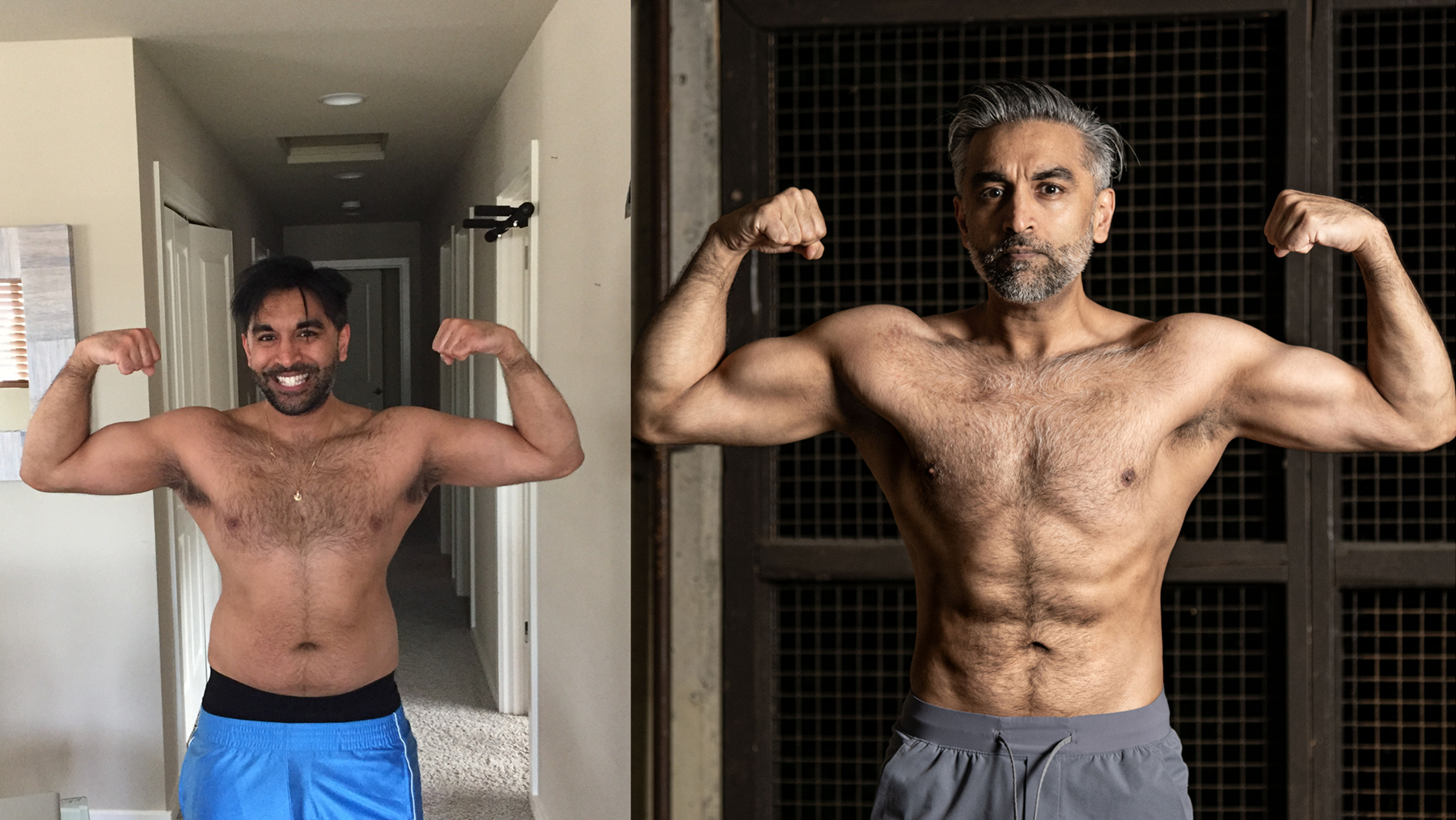
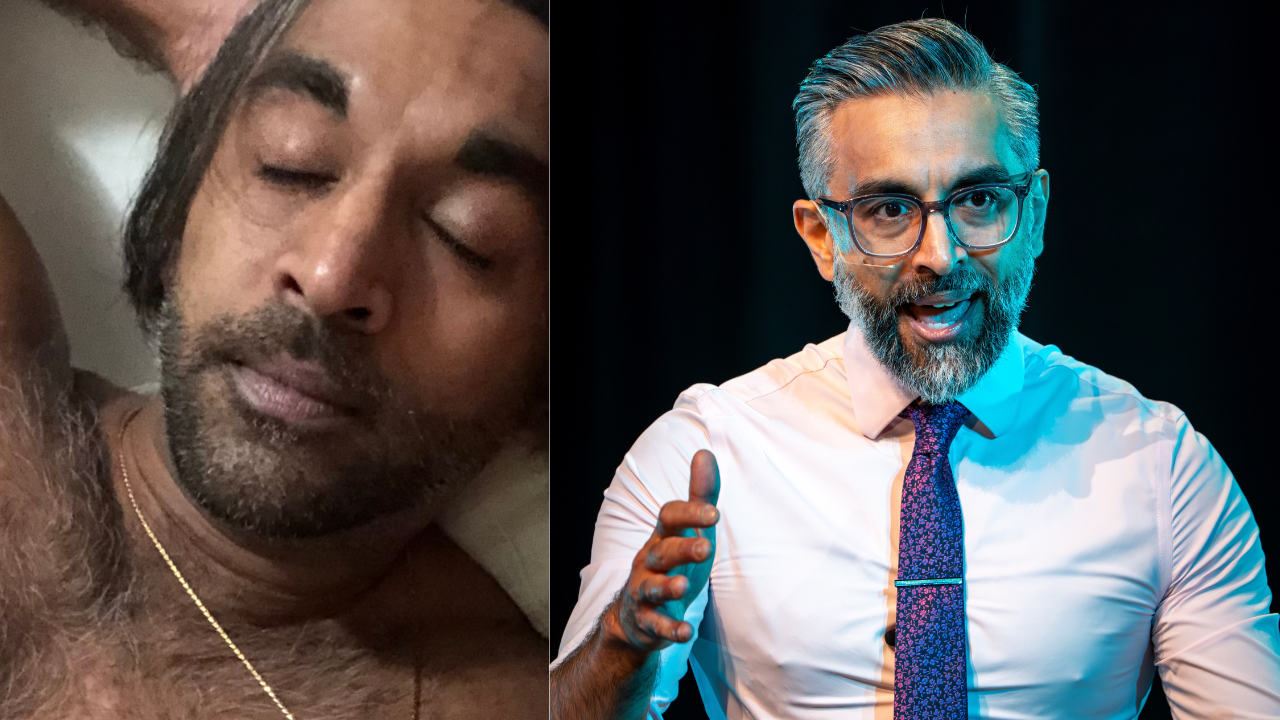
It must’ve sucked to walk around agreeing with everyone, pleasing them, and thinking that I'm just the dumb doctor. I would have a sit-down with him and said.
Lil bro:
Just start creating Alchemical Awareness, around your resentments
Be relentless, in the pursuit of greatness, bounds are endless
Don’t be defenseless, keep your guard up, you ain’t helpless
Stop eating so much, don't do drugs, you won’t regret it
Play Neurobiologic Ju-jitsu, just blend it, with your truth, don’t bend it
You'll be speaking, concretely inspiring others sincerely, so tremendous
Alchemize your resentments, you’ll have a 4 pack at 45, just accept it :-)
The image on the left captures a time when, like many, my Mission–Vision–Purpose (MVP) was unconsciously driven by the need for external validation.
I stopped watching TV, abandoned superficial conversations, and began accounting for every hour of my day. I embraced the monastic fire of solitude, fully surrendering to my MVP, knowing I might have to walk this path without traditional external support.
Today, I work 40 hours a week as a board-certified practicing family doctor and 50 hours a week as a consecrated, embodied self-belief philanthropist and speaker.
The image on the right represents the moment of my fully embodied consecration. It’s the understanding that true power comes not from fleeting dopamine hits of external validation or the catecholamine rush of constantly trying to please, but from attaining Neurospiritual Serenity through applying evidence-based Mind Hygiene every second, all day long.
By writing through my truths and cultivating internal validation, especially in the absence of immediate external success, I’ve built genuine self-love and Neurospiritual Sovereignty. This is the choice to live in the steady serotonin of self-acceptance rather than the cortisol spikes of chasing approval. It’s about embracing dopamine delay through dopamine devotion, as opposed to radical emotional dopamine hits. This is the essence of Neurobiologic Ju-jitsu™.
It’s about inspiring others from a place of unwavering radical courage, radical inner truth, radical acceptance, and radical action, without breaks, and without seeking external validation.
You no longer need anyone to tell you you’re good.
You believe in yourself and your limitations.
You believe it every second, especially when no one is watching.
You live in emotional sovereignty, free from resentments and judgments that clutter the mind.
You move in an implicit, empathic state because you’ve taken the time to forgive yourself.
You love yourself without anyone’s approval.
And when no one is watching…you live in the Clouds of Emotional Freedom.
